Exterior Orchard, A Conversation with Survival Piece V
Outdoor installation of 12 citrus trees at the
La Jolla Historical Society’s front lawn
Hexagonal planter redwood boxes, 2 feet tall x 4 feet diameter; an assortment of living citrus trees
Courtesy the Harrison Family Trust
Exterior Orchard, A Conversation with Survival Piece V (2024), is an homage to their Portable Orchard (1972). The 1972 piece was commissioned by the Gallery at California State University, Fullerton “because of the loss of orchards and farms to suburban and industrial development and resulting smog in the area, the work was prophesied to be the last orange orchard in Orange County.” Our version consists of 12 hexagonal planter boxes filled with a variety of citrus trees and local compost - a revolutionary concept in 1972 that carries a relevant message today. In Helen Harrison’s own words: “To survive as a species, we are going to have to learn how to grow our own food and take care of ourselves at one point or another. So we started looking at what that means.”
This project has been a learning experience from beginning to end. Every step has taught us something valuable. That’s why it was so important for us to partner with a school. By doing so, we aim to pass on the legacy of learning, honoring the spirit of Helen and Newton Harrison, who were educators themselves. In their own words, “Part of the experiment was to see which trees thrived and which failed.”
Portable Orchard was another experiment that imagined a radical lifestyle reorientation to assume personal responsibility for one’s own food production in order to protest harmful and exploitative industrial agriculture and ultimately to survive.
This project was made possible through the generous support of the M&I Pfister Foundation.
High Tech High Mesa Externship
On June 4th and 5th we hosted eight High School seniors at our site. These students met with exhibition curator Tatiana Sizonenko to learn about the Harrisons’ commitment to ecology. They surveyed the exhibition site, studied Helen and Newton’s original 1972 design plans and then got to work. A makeshift woodshop was setup with limited tools and a single miter saw, assuming the students would have little to no experience in fabrication. These students not only had experience, but also possessed practical knowledge and skills. After reviewing the plans together, the students divided into groups based on their preferred tasks and what needed to be done. Our initial goal was to start one planter, and we were blown away when the students completed two planters over the two days of the HTH Mesa Externship. Additionally, they tackled design challenges, considering how the Harrisons would approach this project in 2024, how to reuse the planters or the materials, and how to design planters in an ecological way.
Their creativity and initiative were truly impressive, demonstrating a deep understanding of innovative and creative thinking. This externship not only showcased the student’s skills and knowledge but also highlighted the importance of hands-on learning experiences especially in fostering environmental stewardship. The success of this project leaves us excited for future collaborations and the potential these young minds have to make a meaningful impact on our world.
Guided by the spirit of Helen and Newton Harrison, we, along with the students, embarked on a journey to be more ecological, understand the importance of trees and soil, and collaborate effectively. We are grateful to the students for their participation and hope that everyone who experiences the orchard appreciates the beauty of the process and the importance of sustainable practices.
This project examines the necessity of ecologically focused and sustainable food systems in a future where farming practices may become obsolete. Spanning the Society’s front lawn, this installation features 12 living citrus trees rooted in hexagonal redwood planters, representing an alternative farming method in response to environmental destruction.
Have you ever thought about the soil your fruits and vegetables are grown in? The nutrients, whether or not the farming practices were sustainable or productive? Have you considered the future of farming? Or what would happen if today’s farming practices were to become obsolete? Helen Mayer and Newton Harrison spent decades creating artwork that addresses these questions.
High Tech High Mesa Externship Participants
A huge thank you to Nick Ortega, Bella Zielinski, Porter Nute, Yusuf Boulanouar, Tyler Kohmescher, Kaleo Loemin, Colin Joseph and Dane Wald, the amazing students who participated in this partnership.
Thank you to David Roney and Peter Jana of HTH for their support in making this partnership possible.
Building the planters with High Tech High Mesa students.
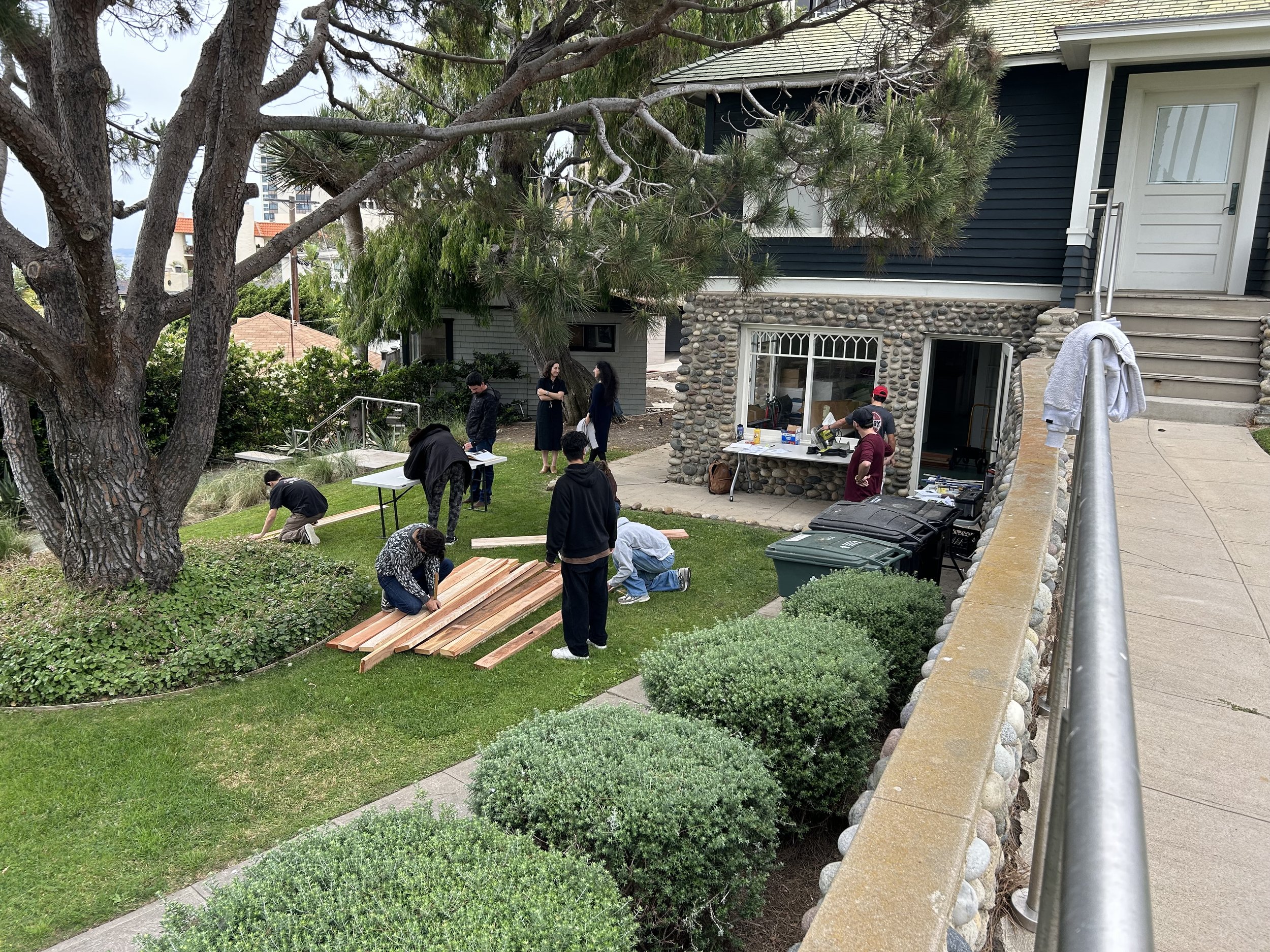


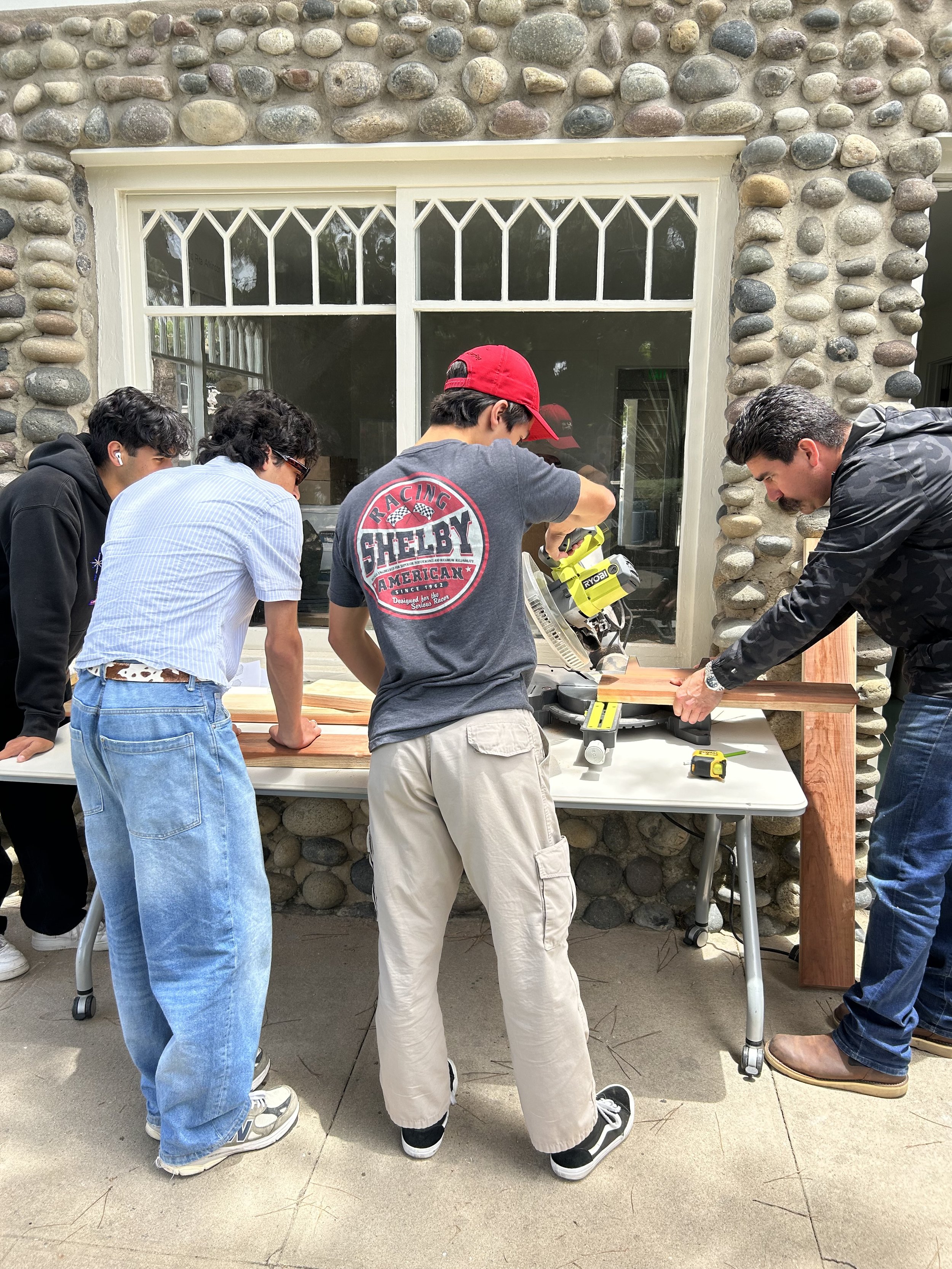
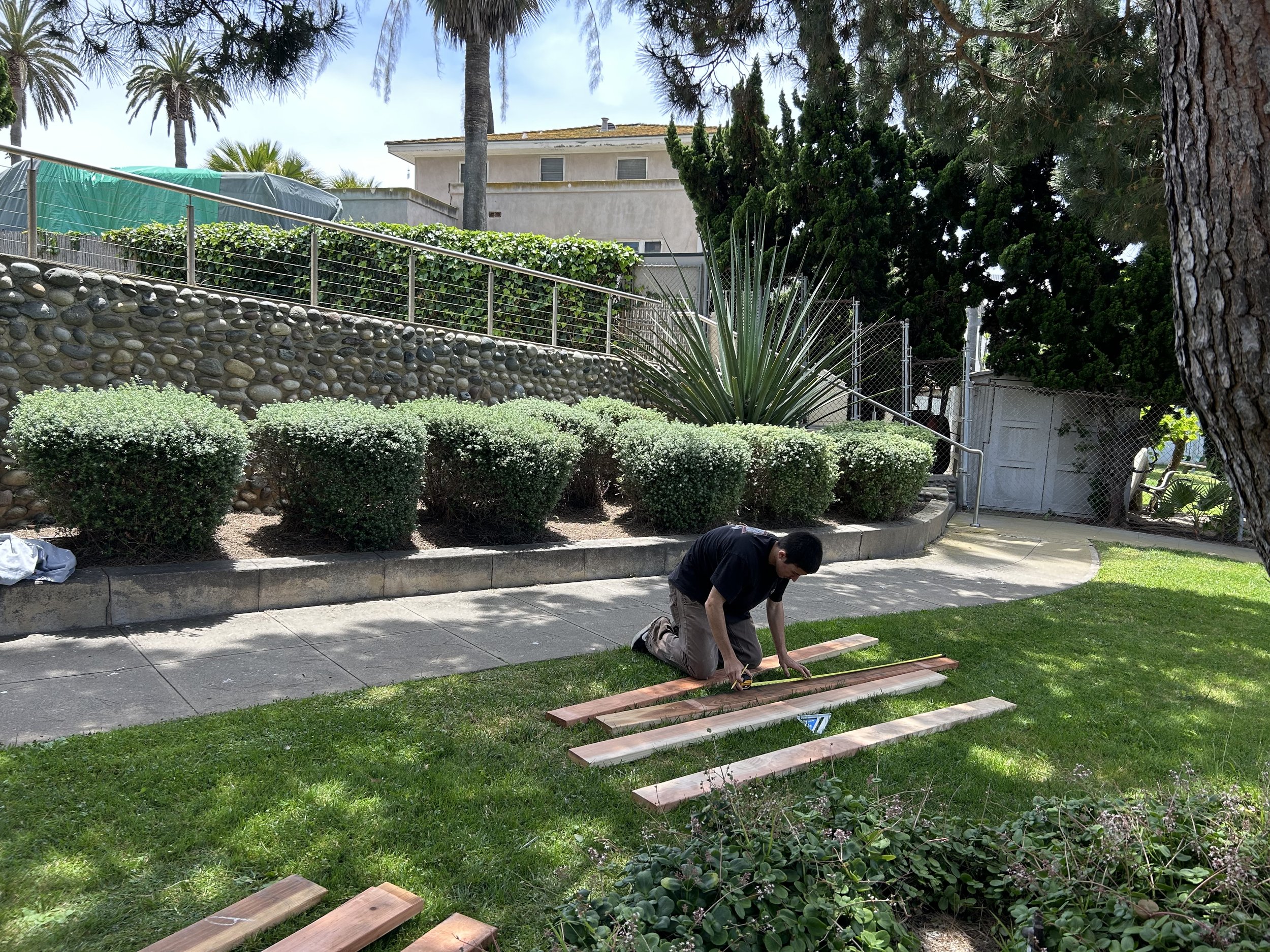

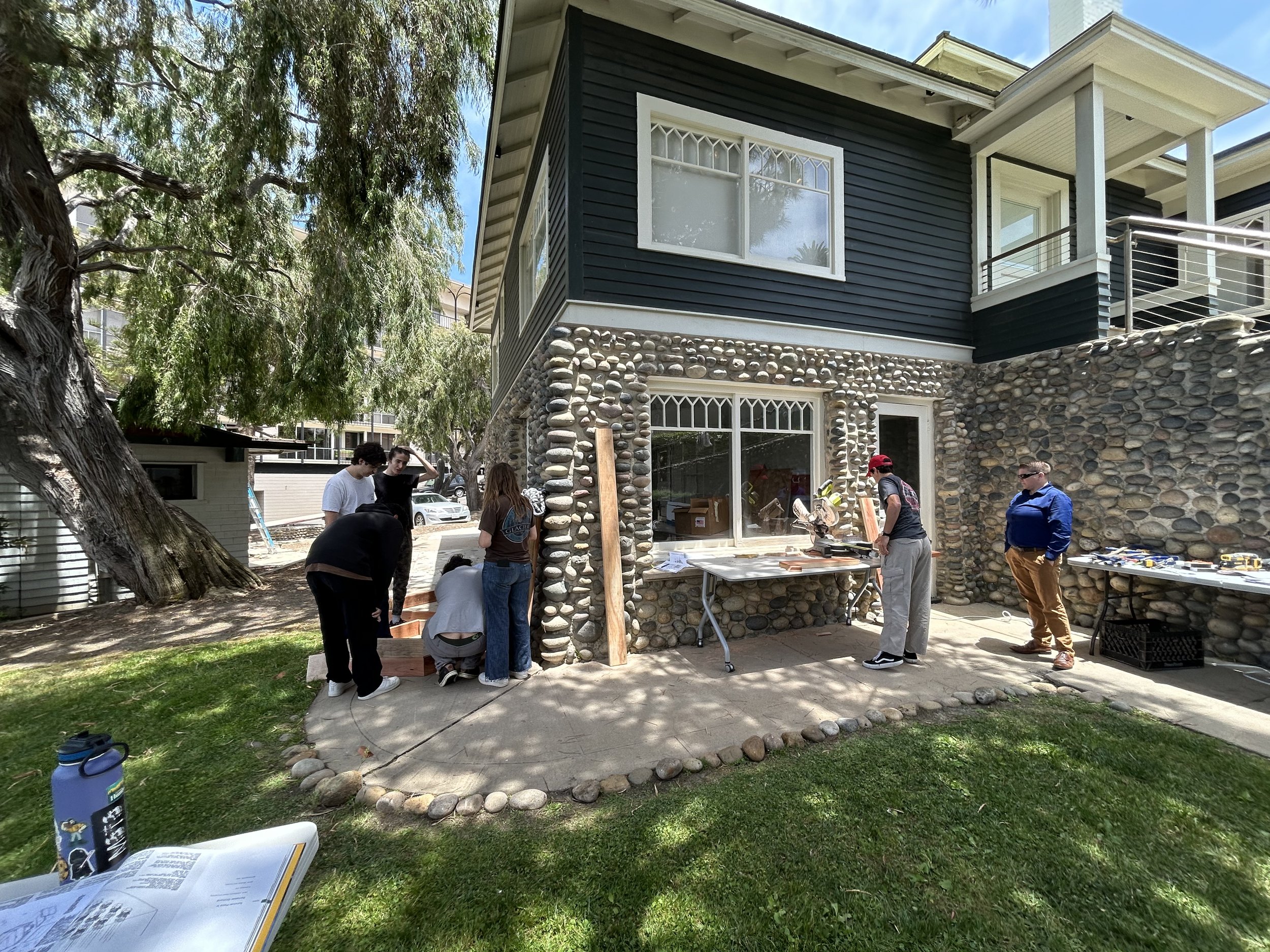

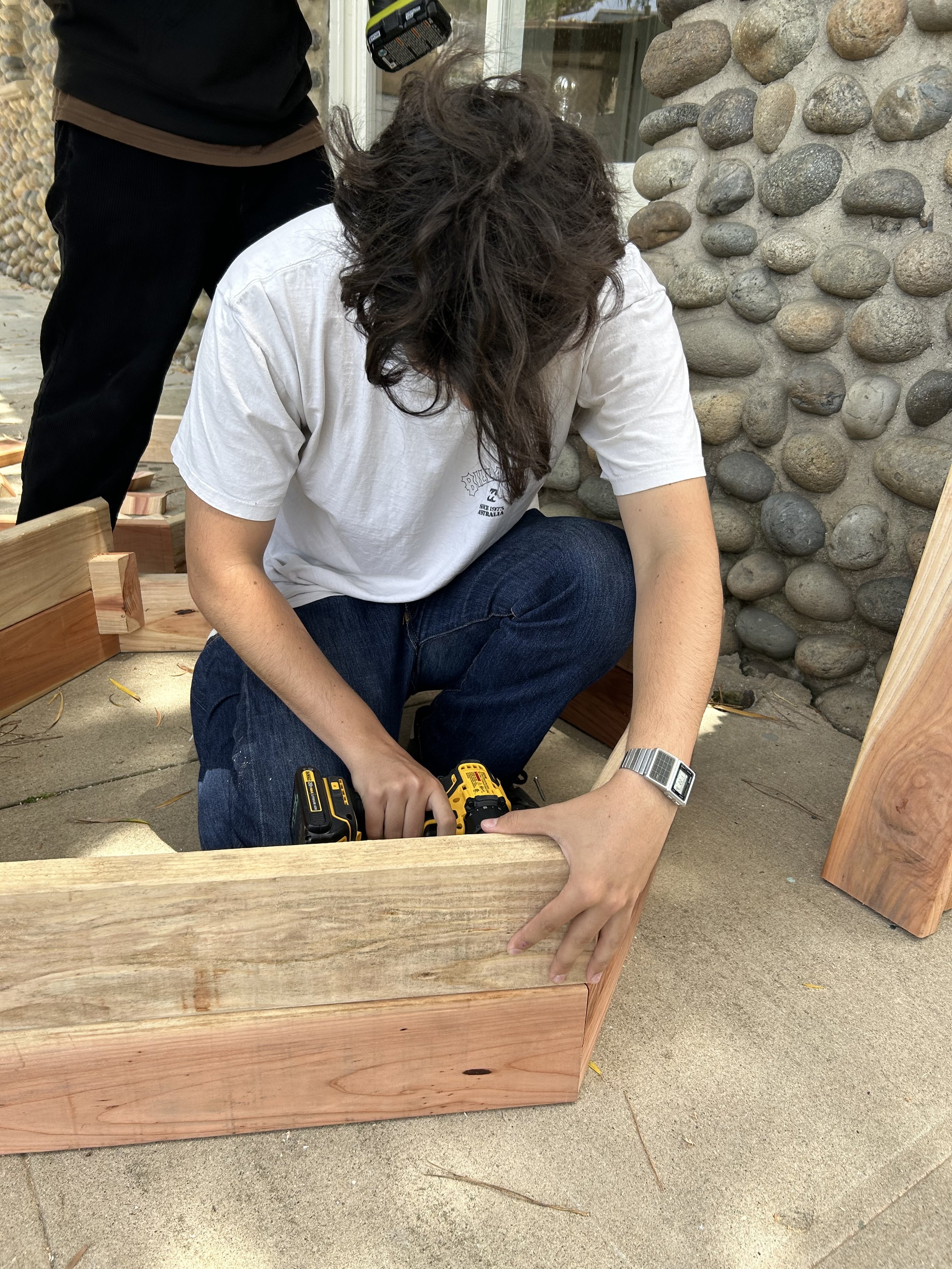
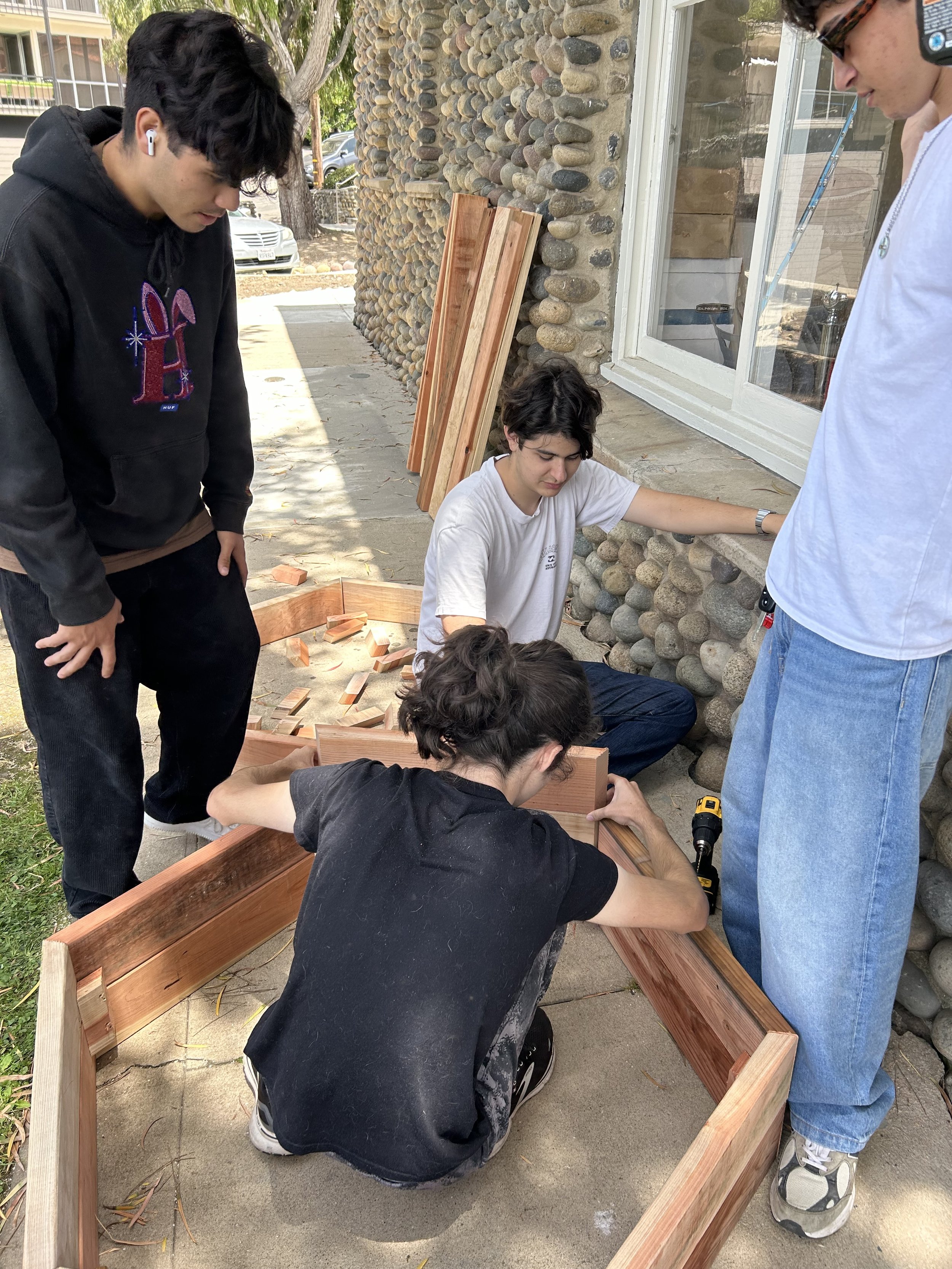

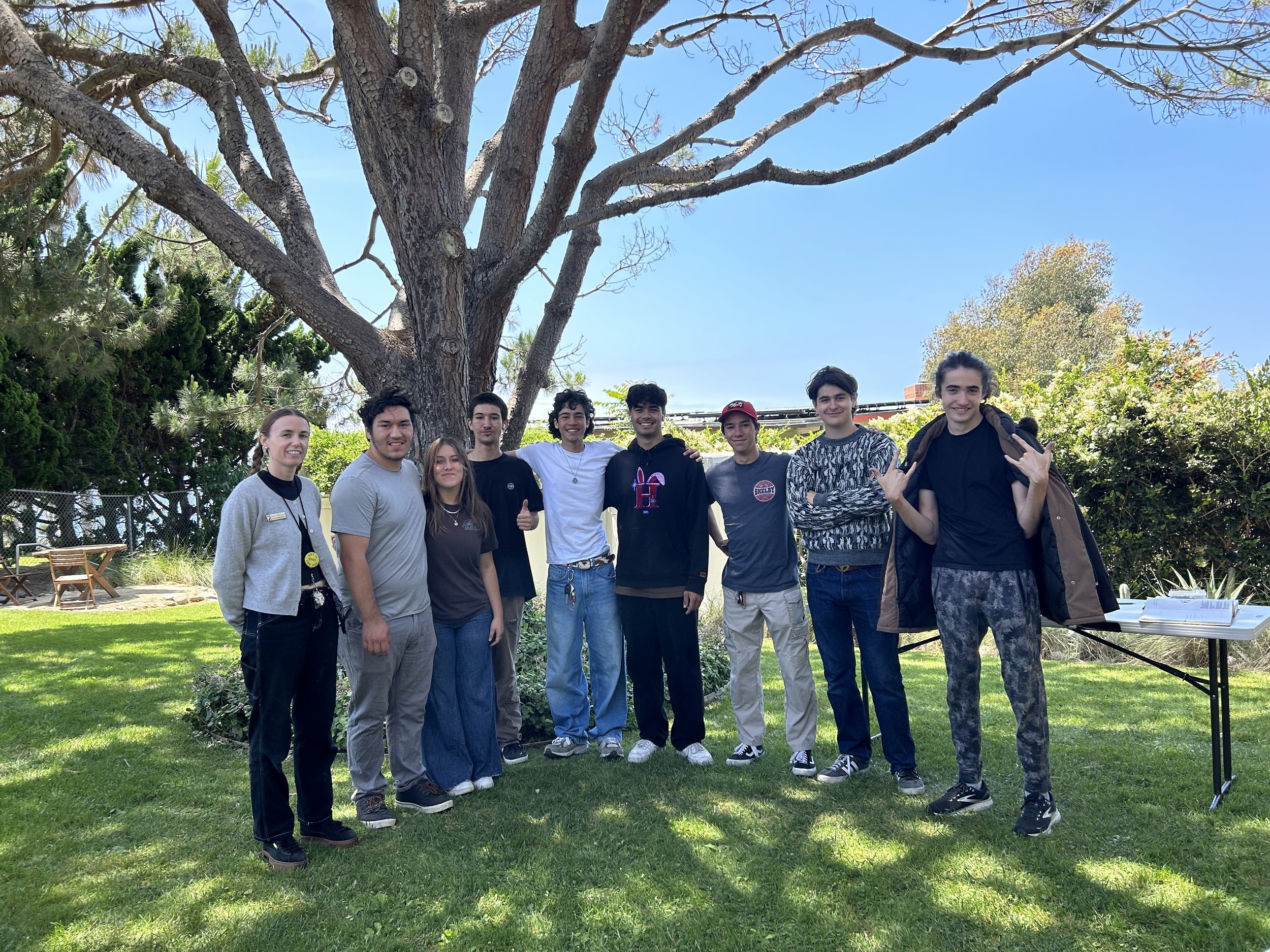

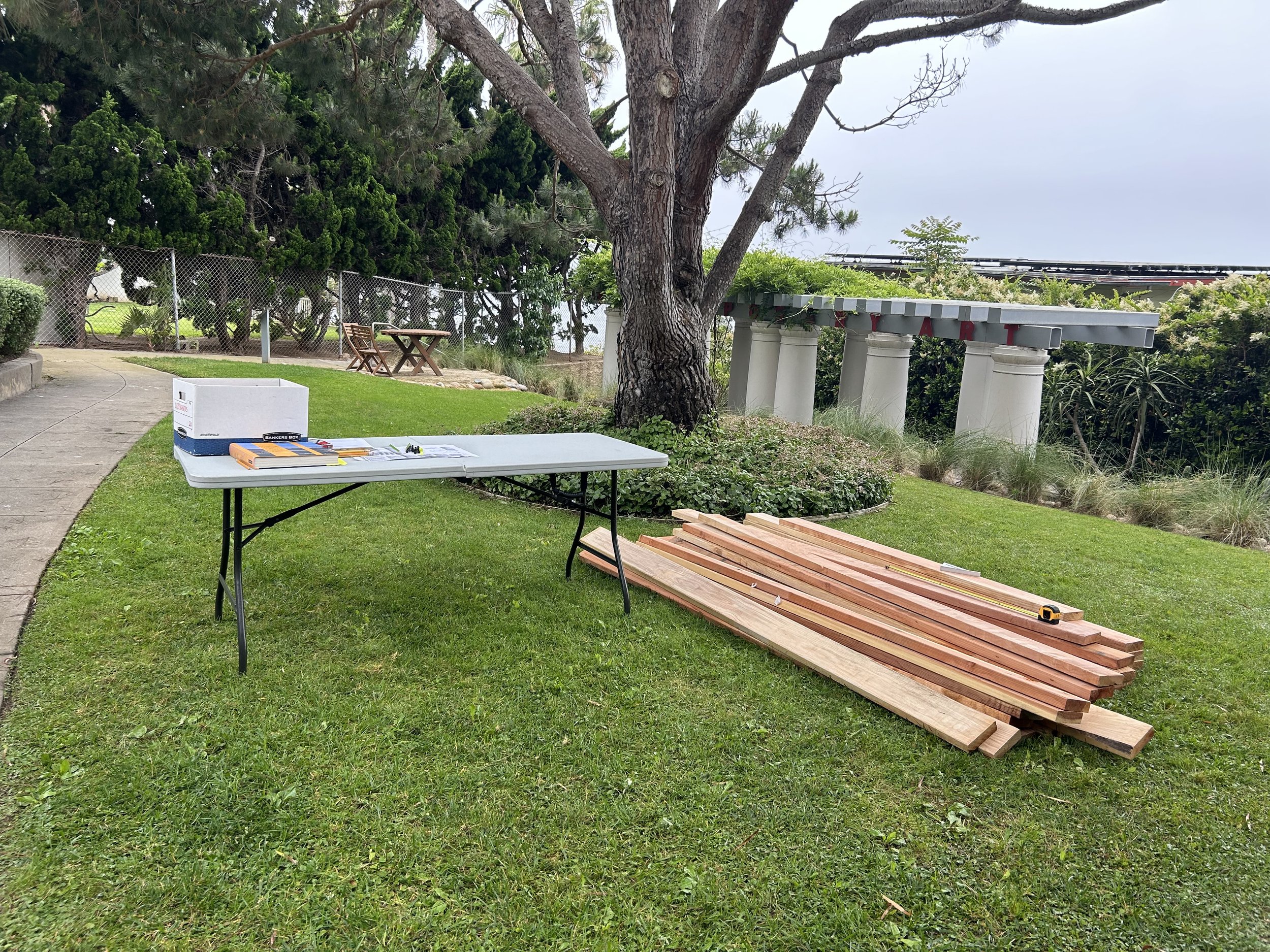
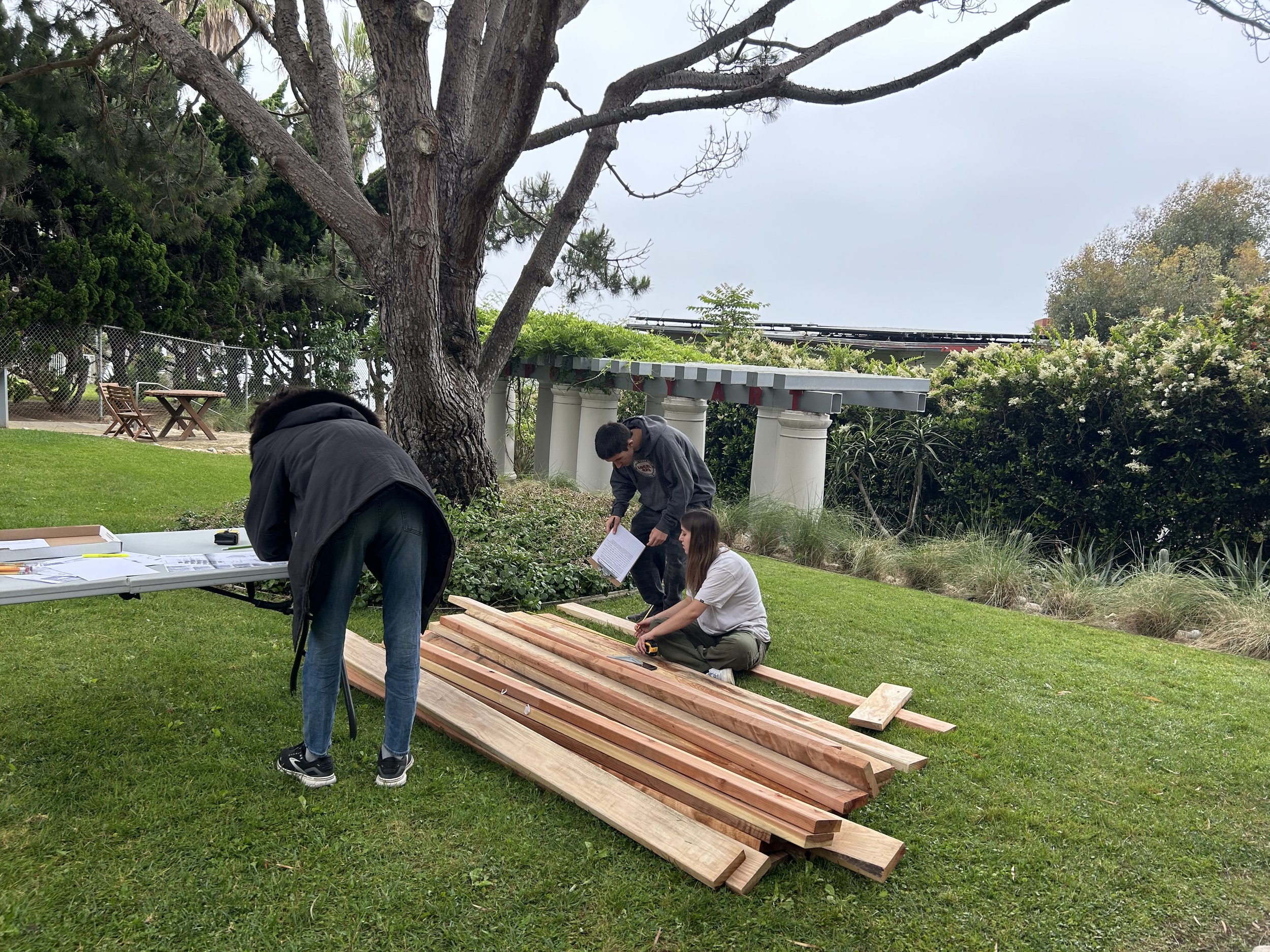
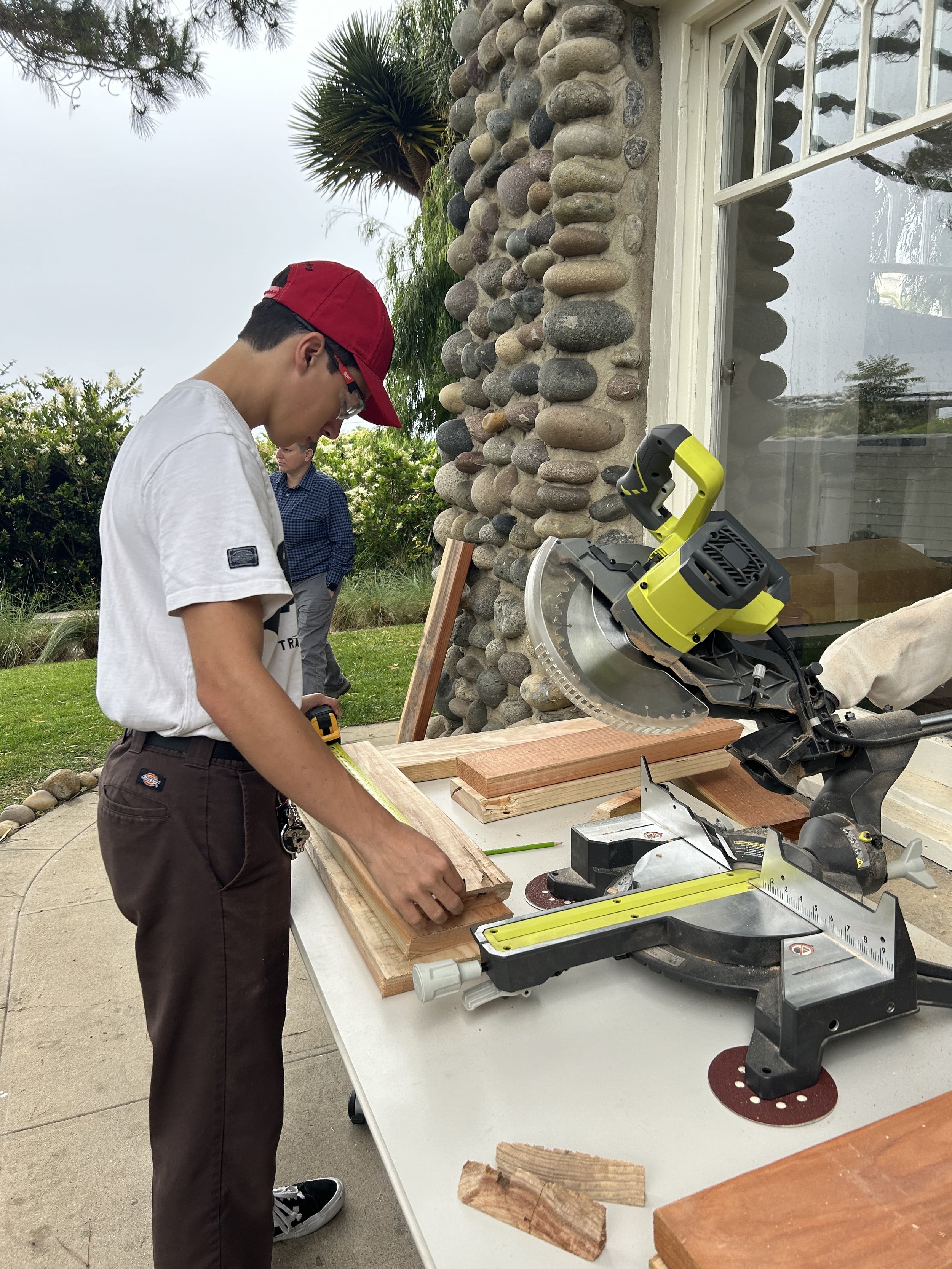

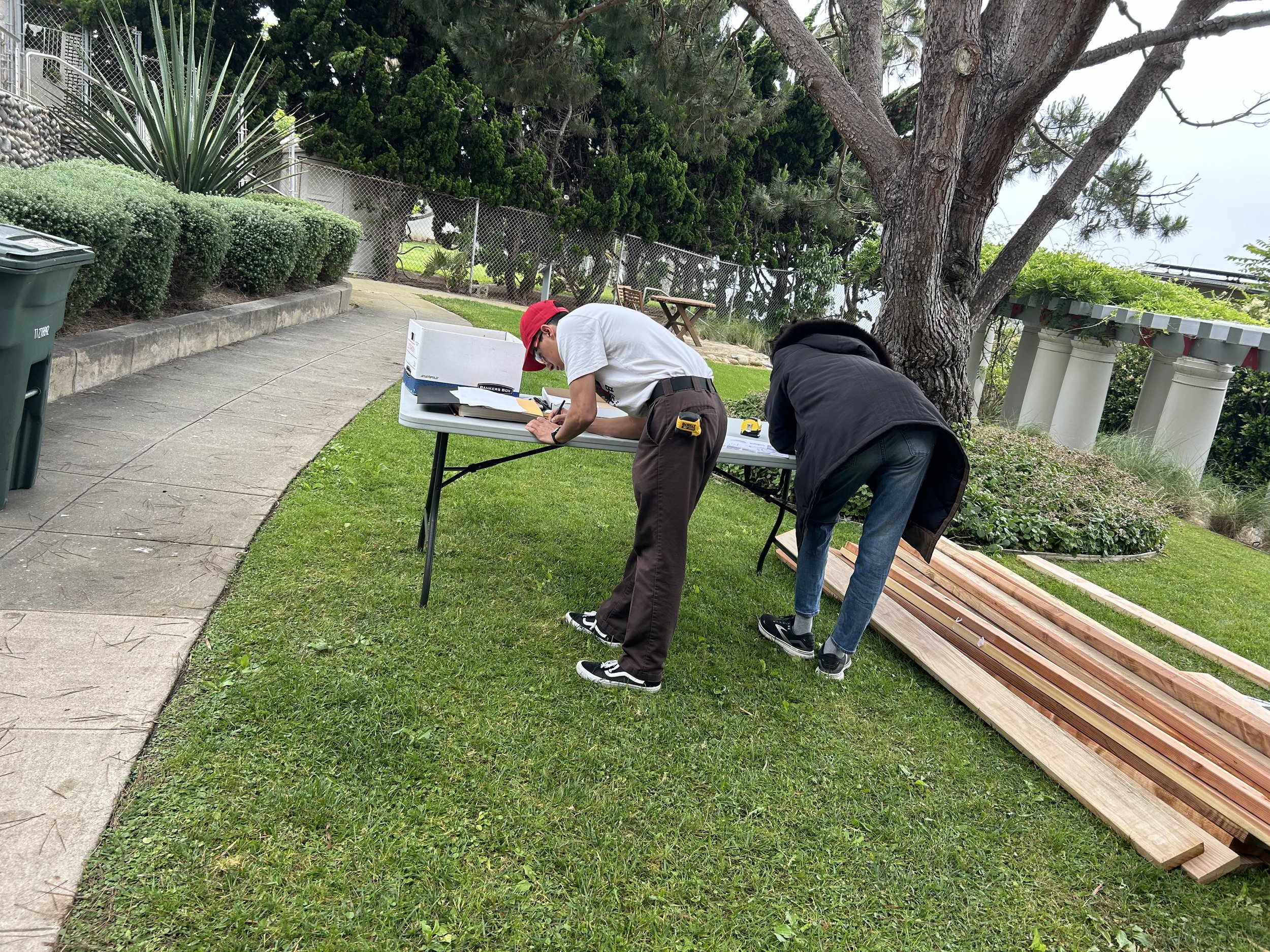
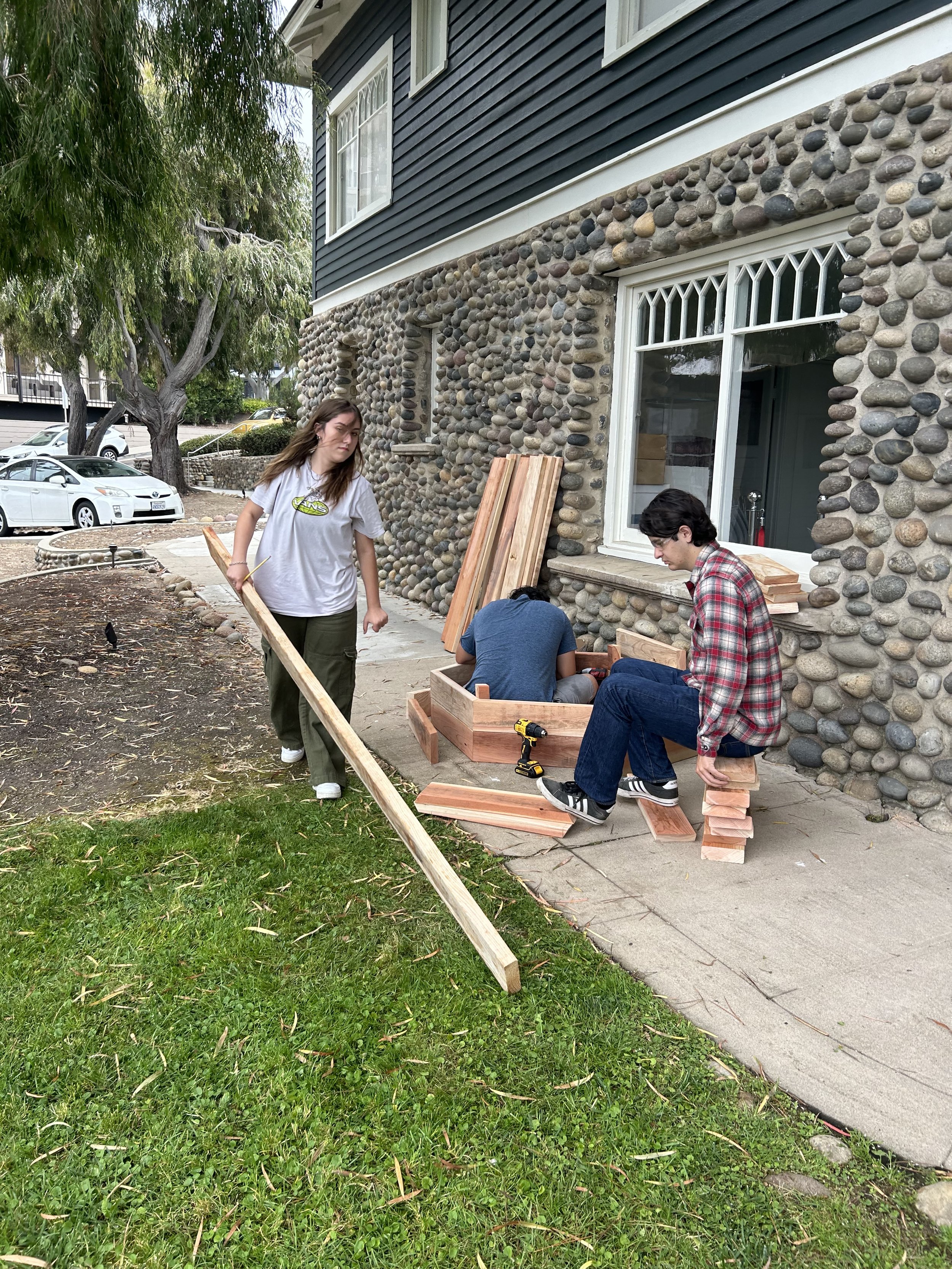
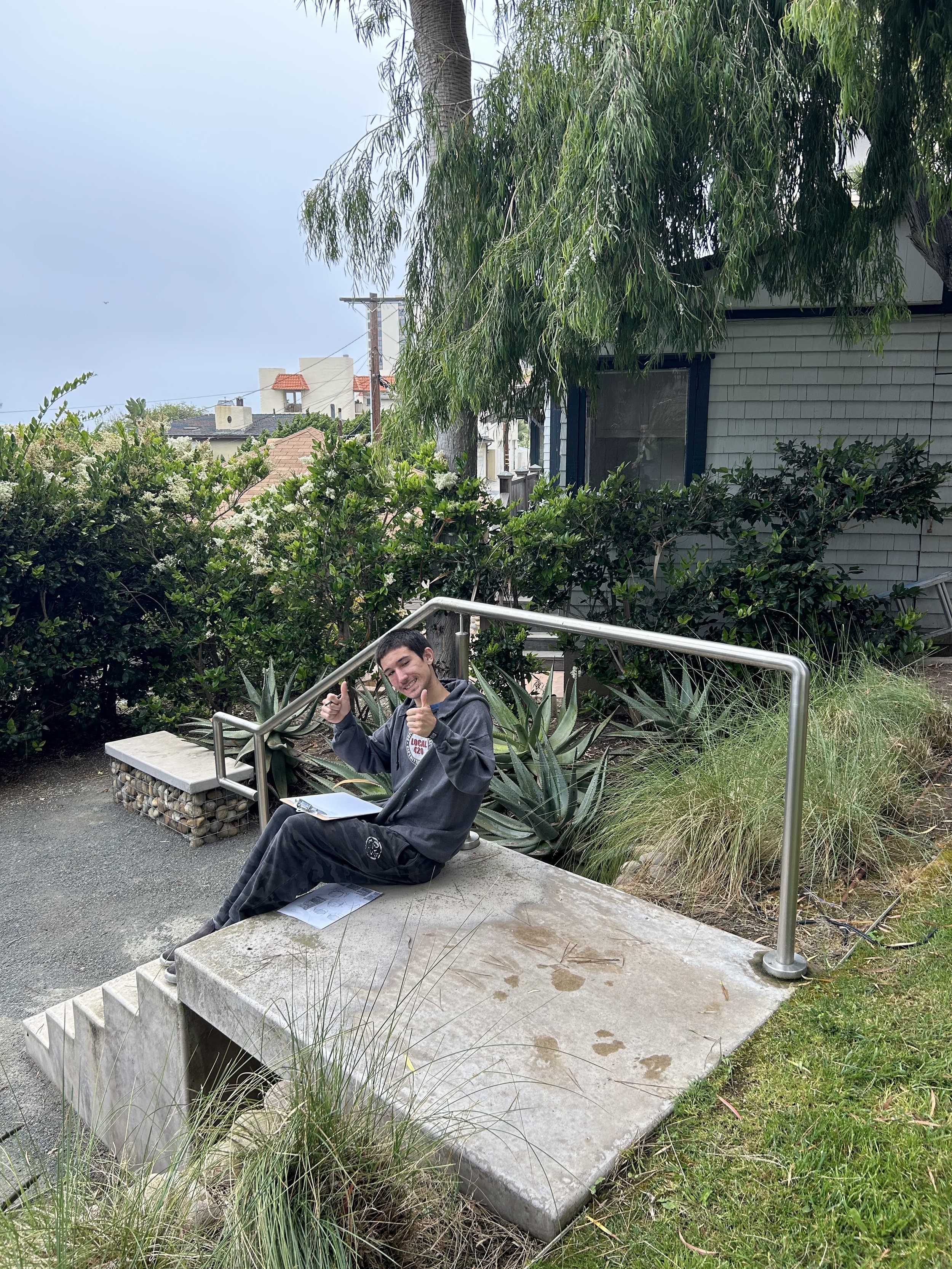




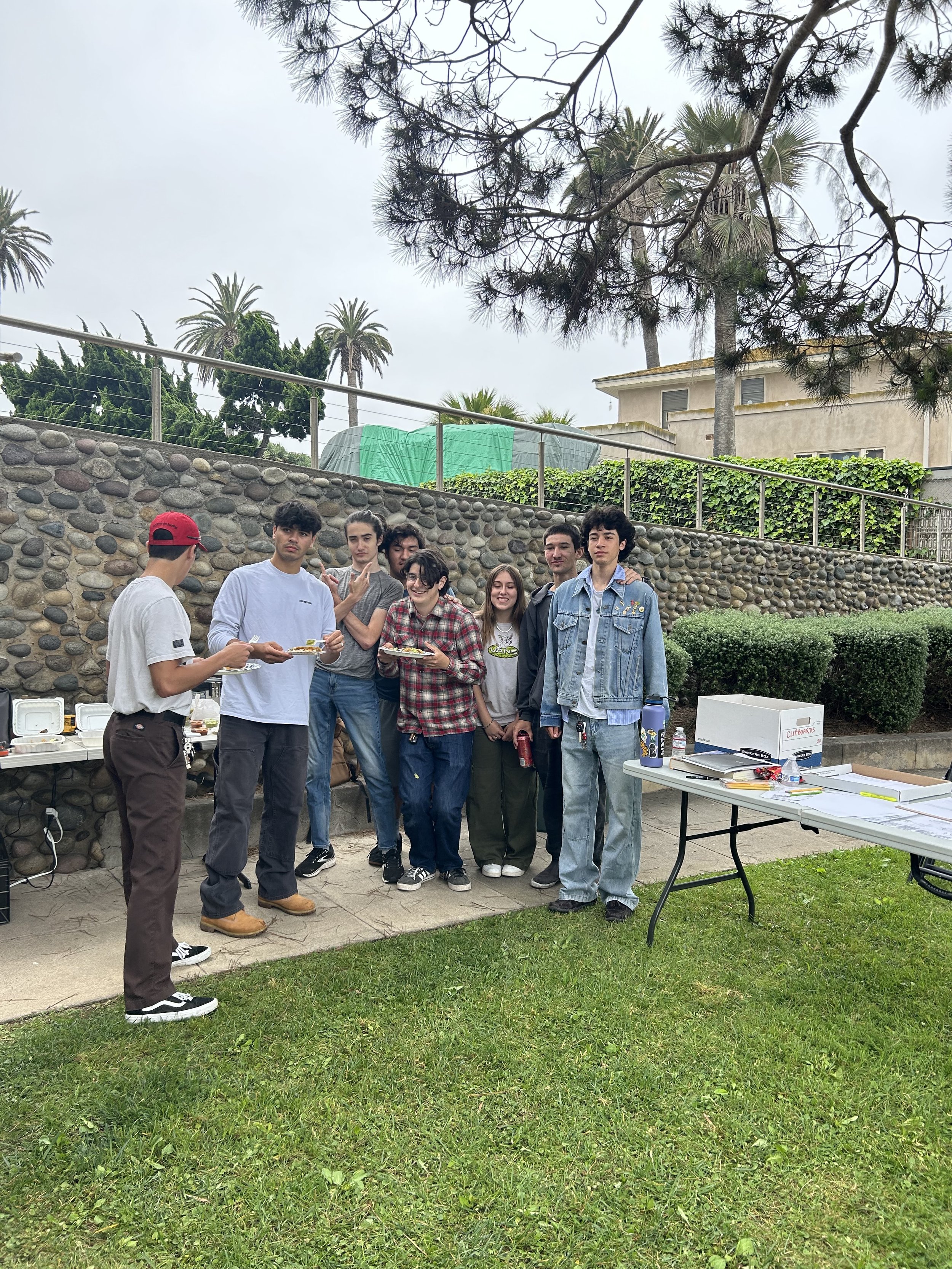
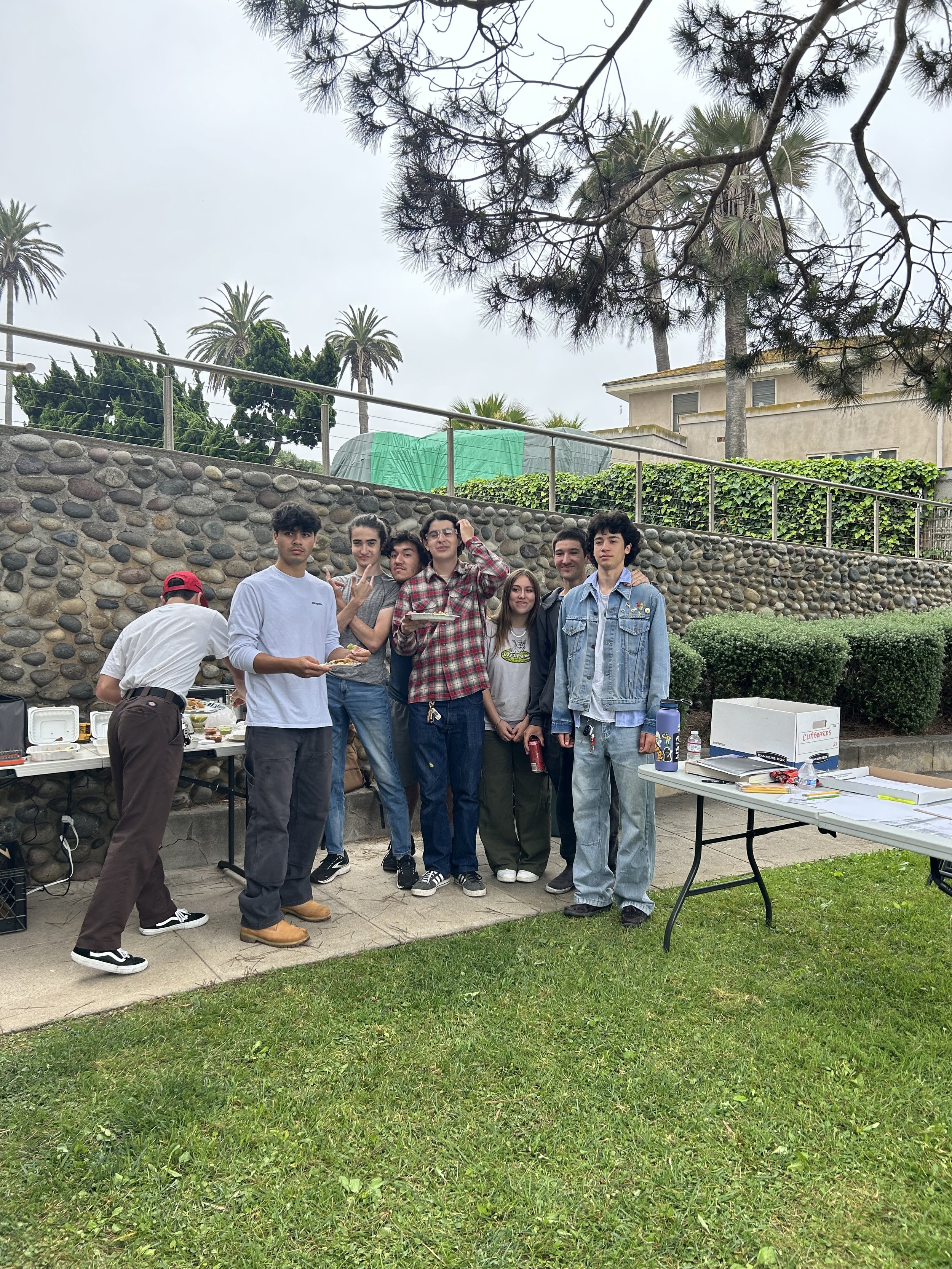
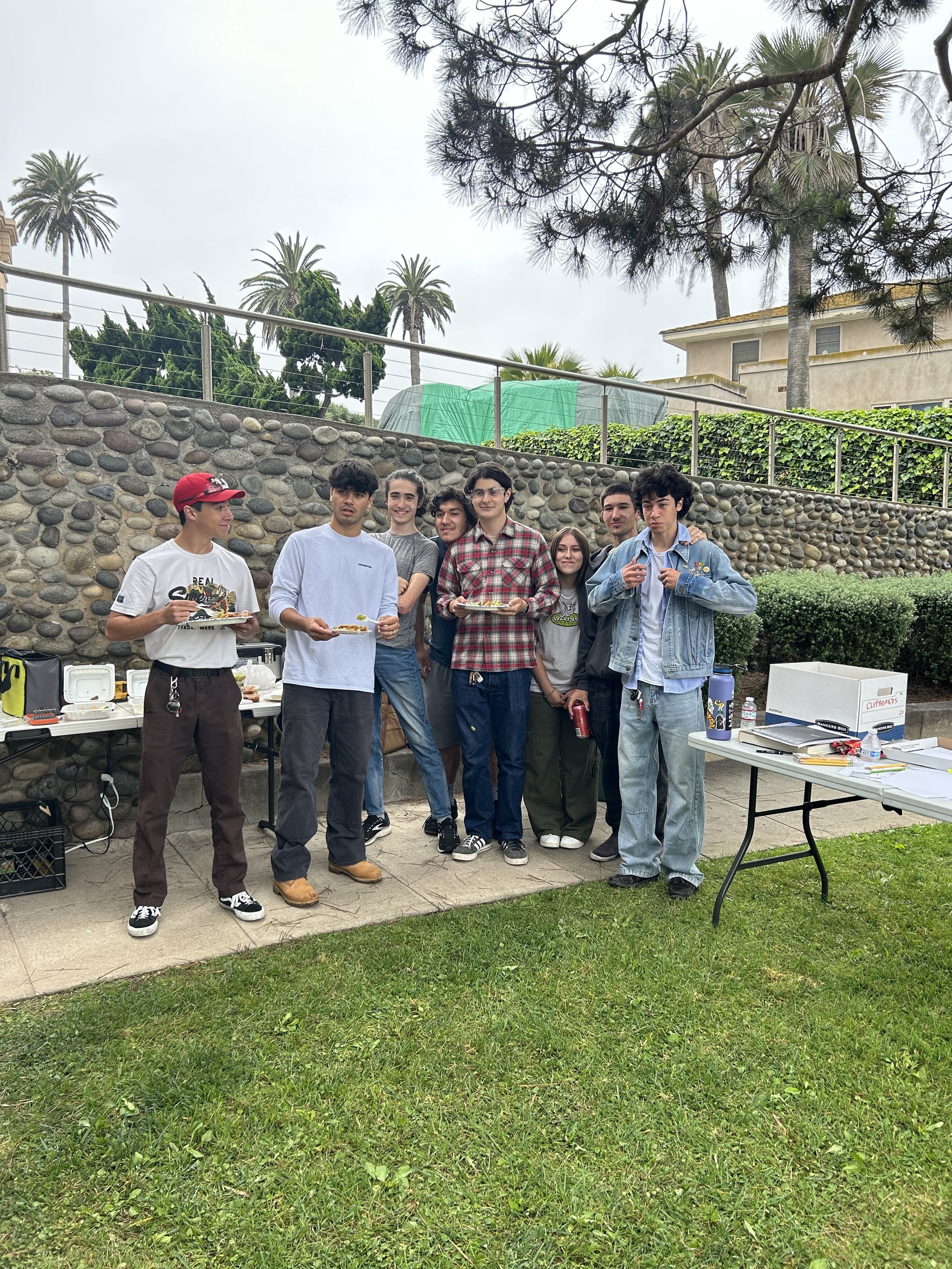
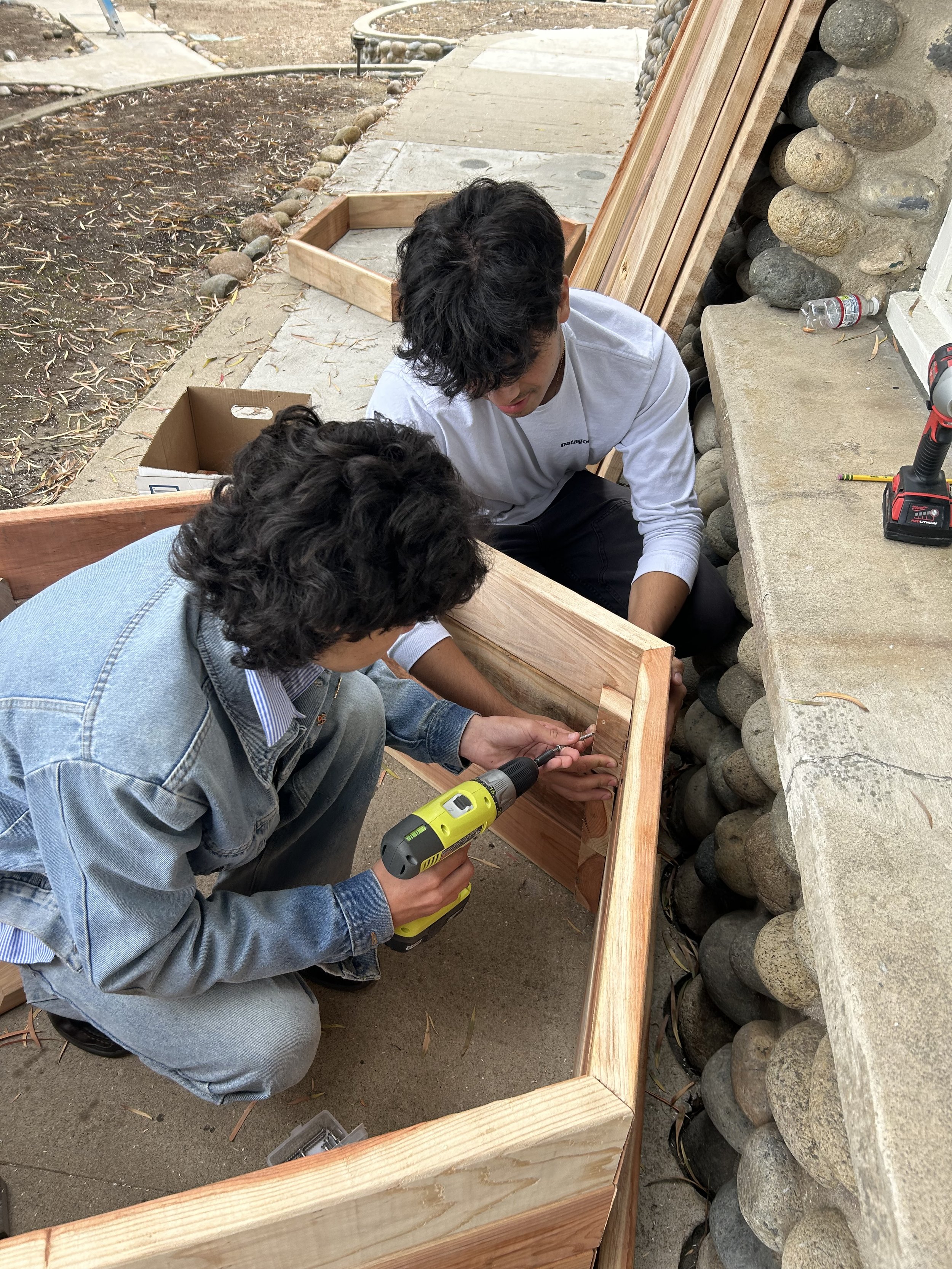
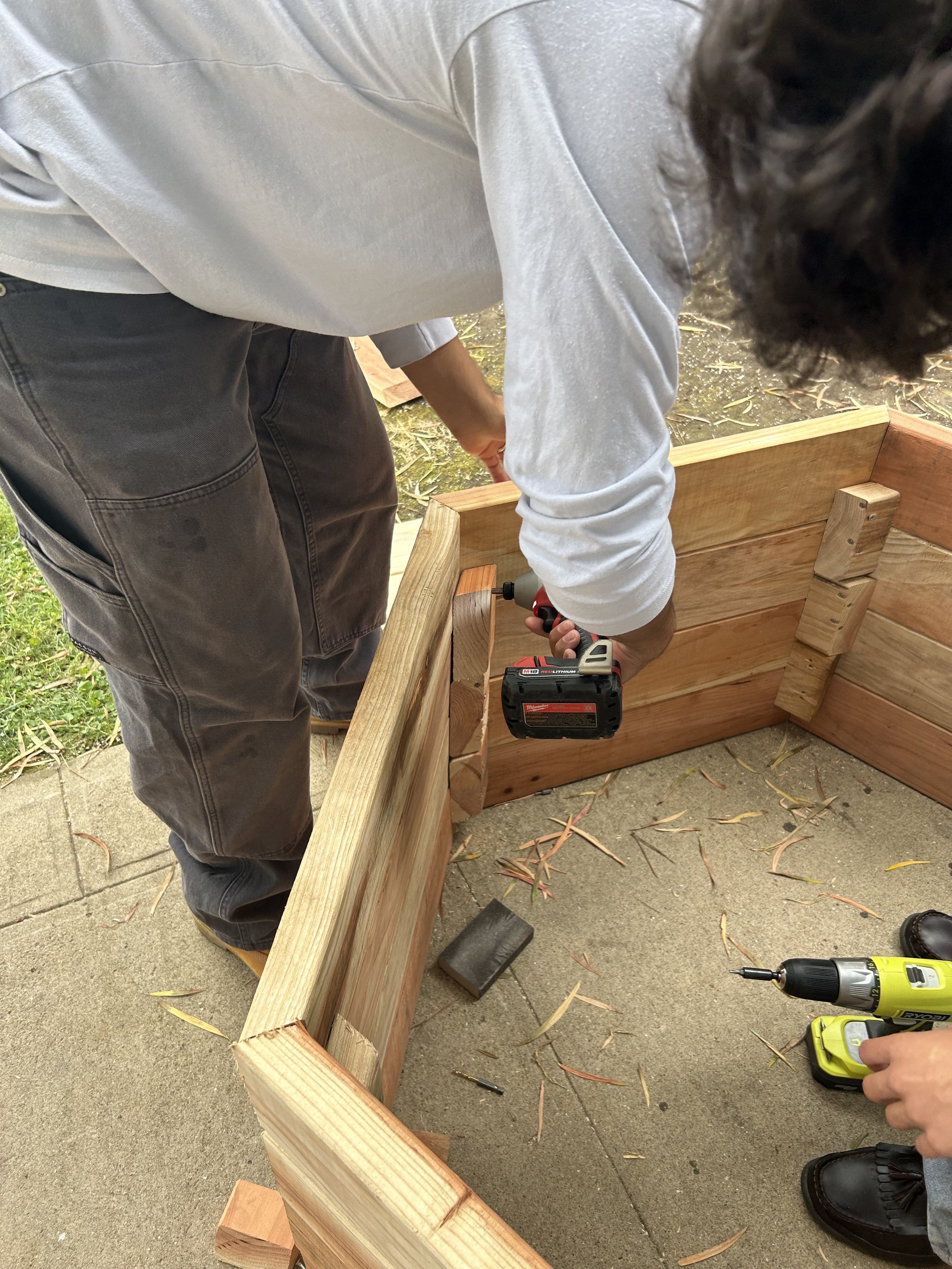
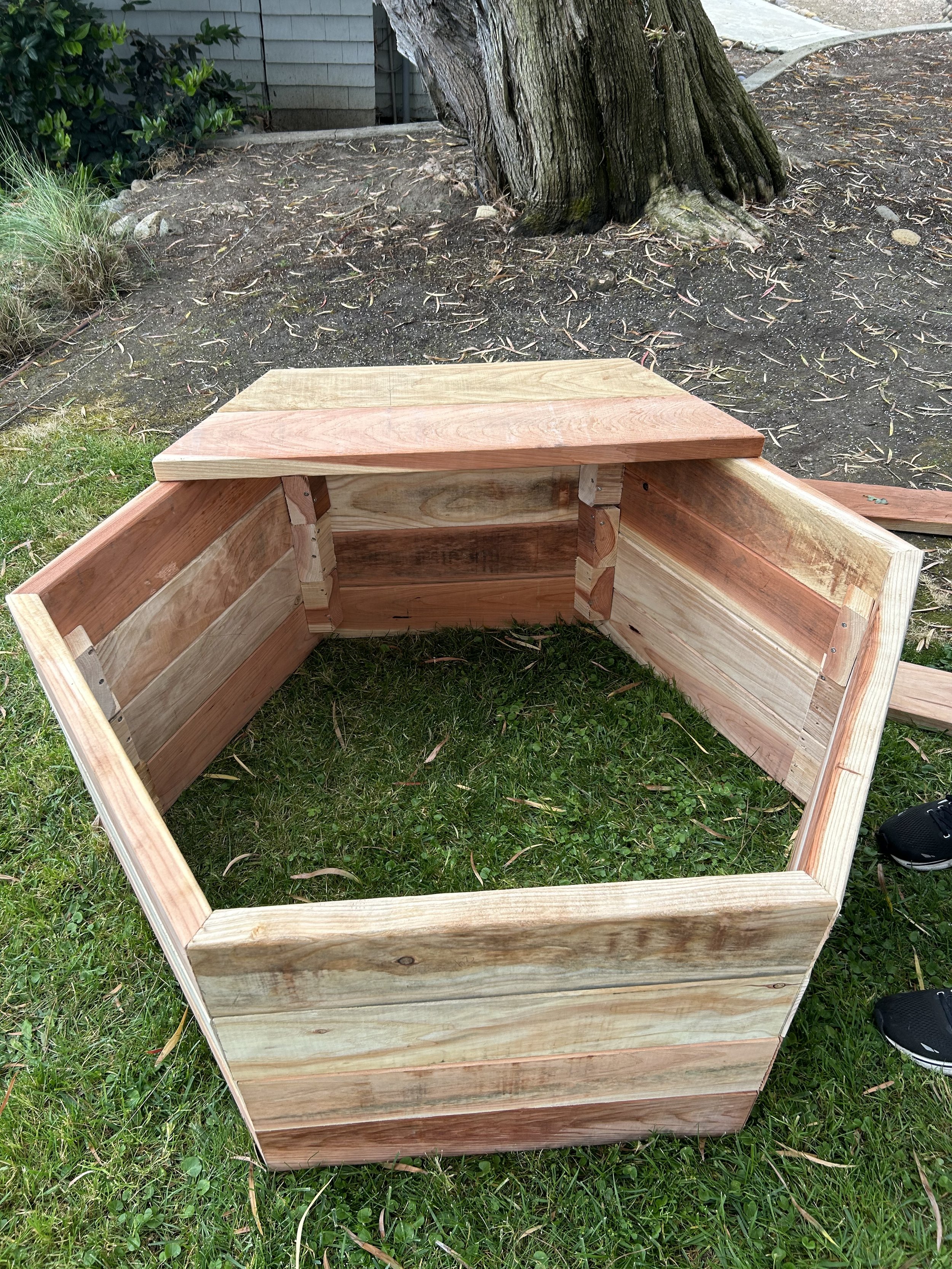

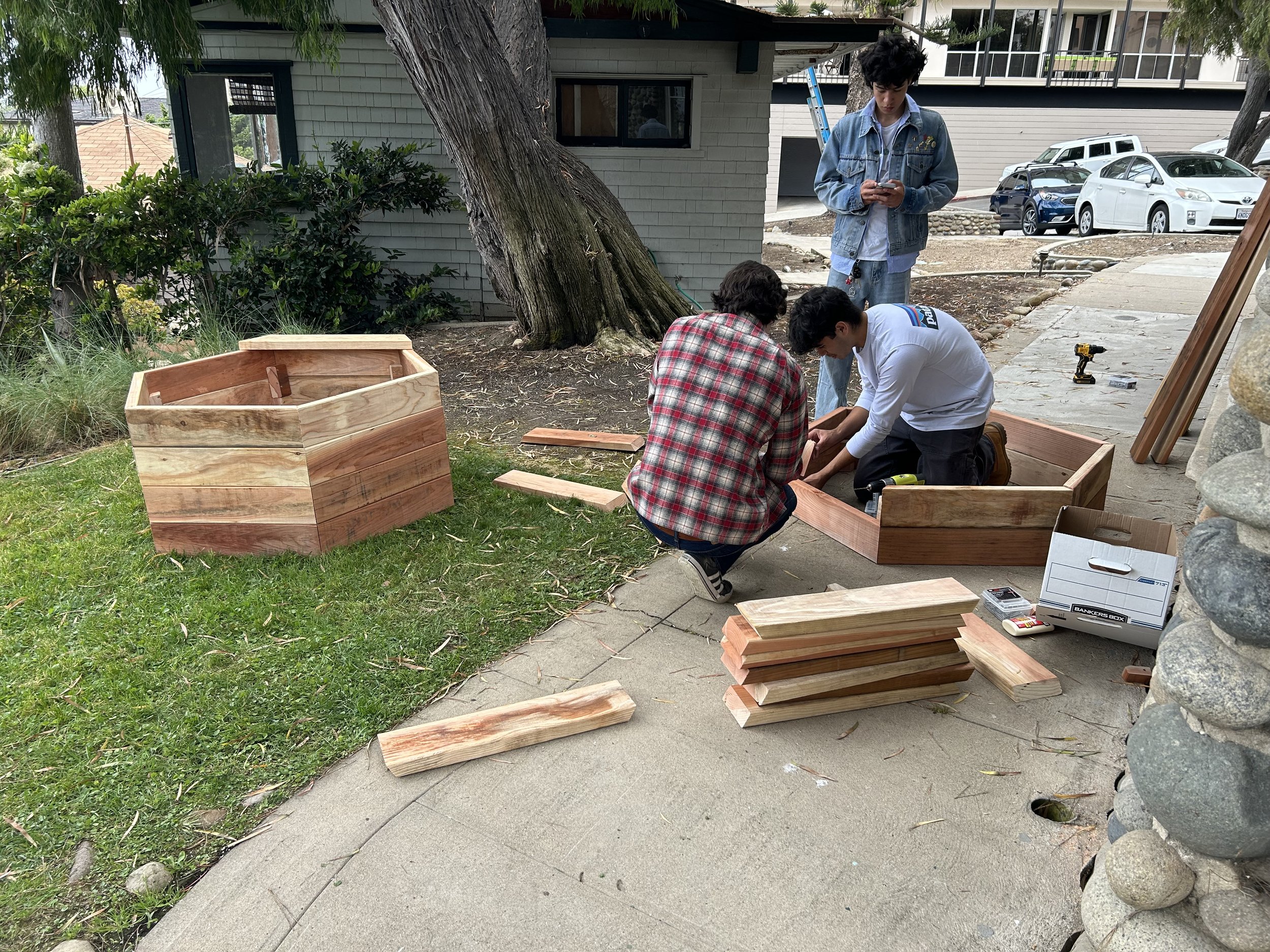

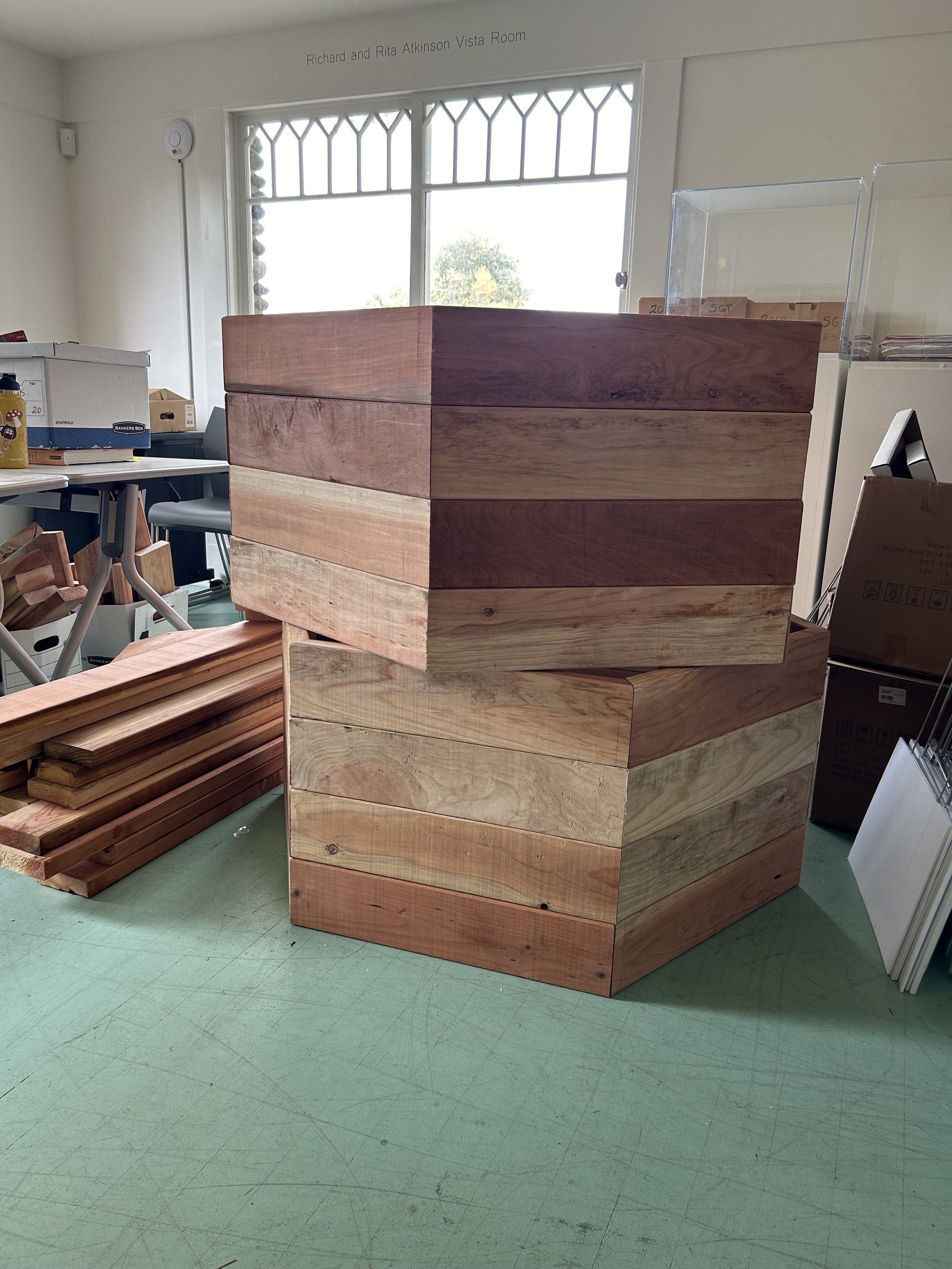
Porter Nute
“I am super fortunate to have been able to have this opportunity. I have enjoyed pretty much every aspect of this dope project. I really loved the background behind this project and how we could use their old plans and bring a little High Tech into it!”
Yusuf Boulanouar
“I enjoyed working alongside my peers & new folks to create something great!”
Tyler Kohmescher
“I like how it’s different from most service in the way that we get to be creative and help the community in the same way. I also enjoyed the hands on opportunity because our project feels complete in the end.”
Dane Wald
“I had lots of fun building! We worked well together, got a lot done, and I was able to use math skills to sort out some problems! Thank you for the opportunity to work here!”
Installing Exterior Orchard


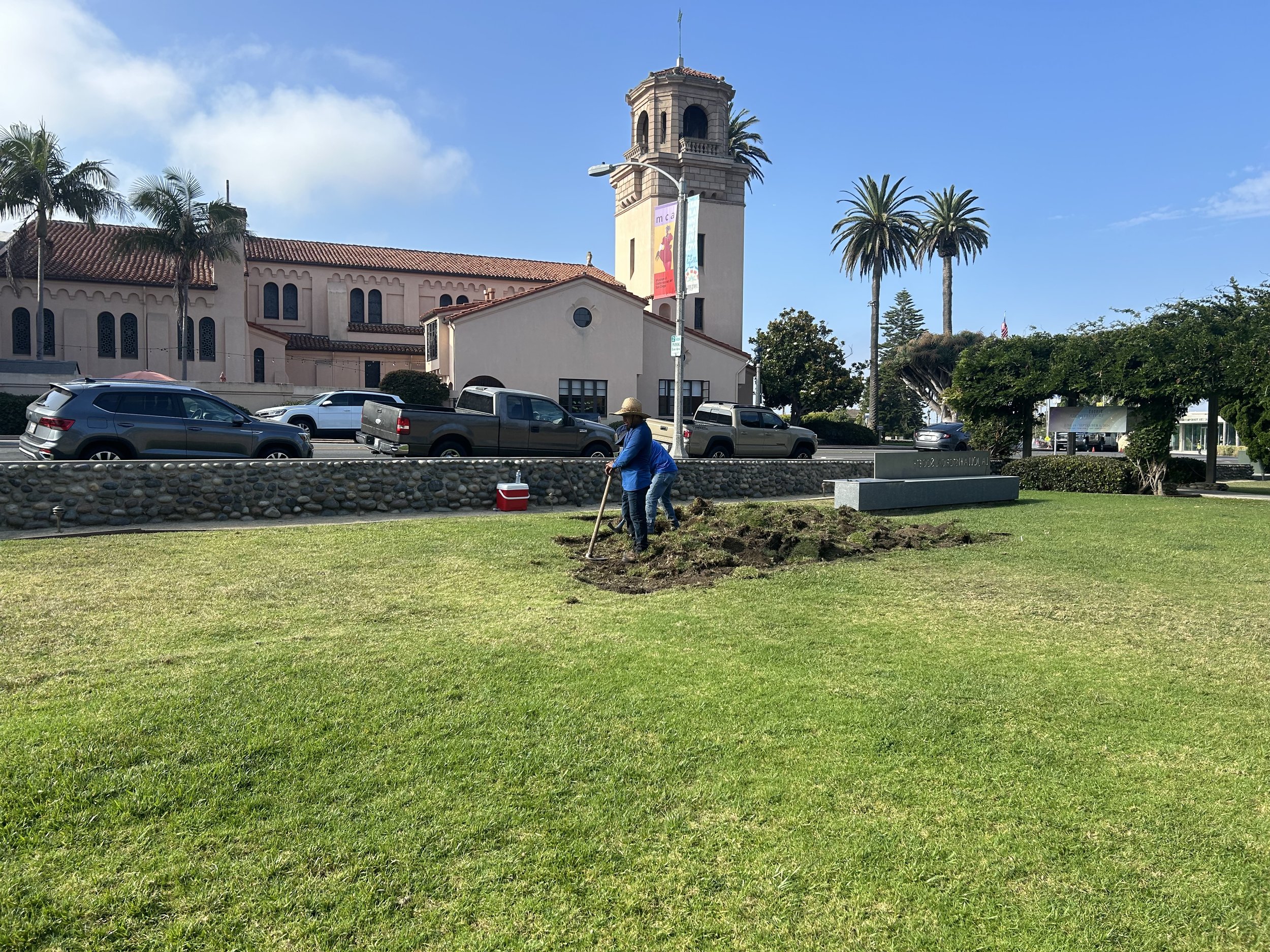
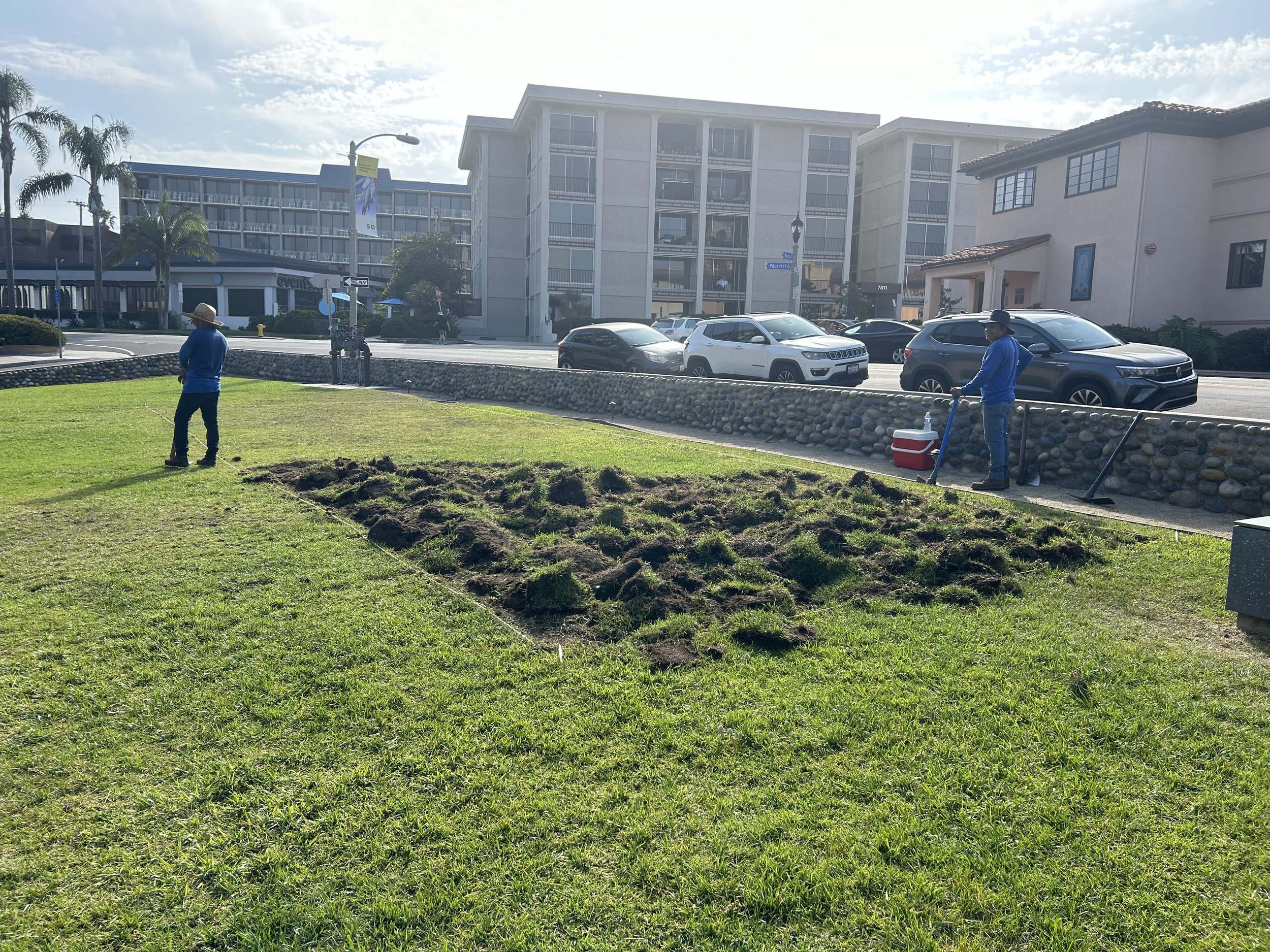
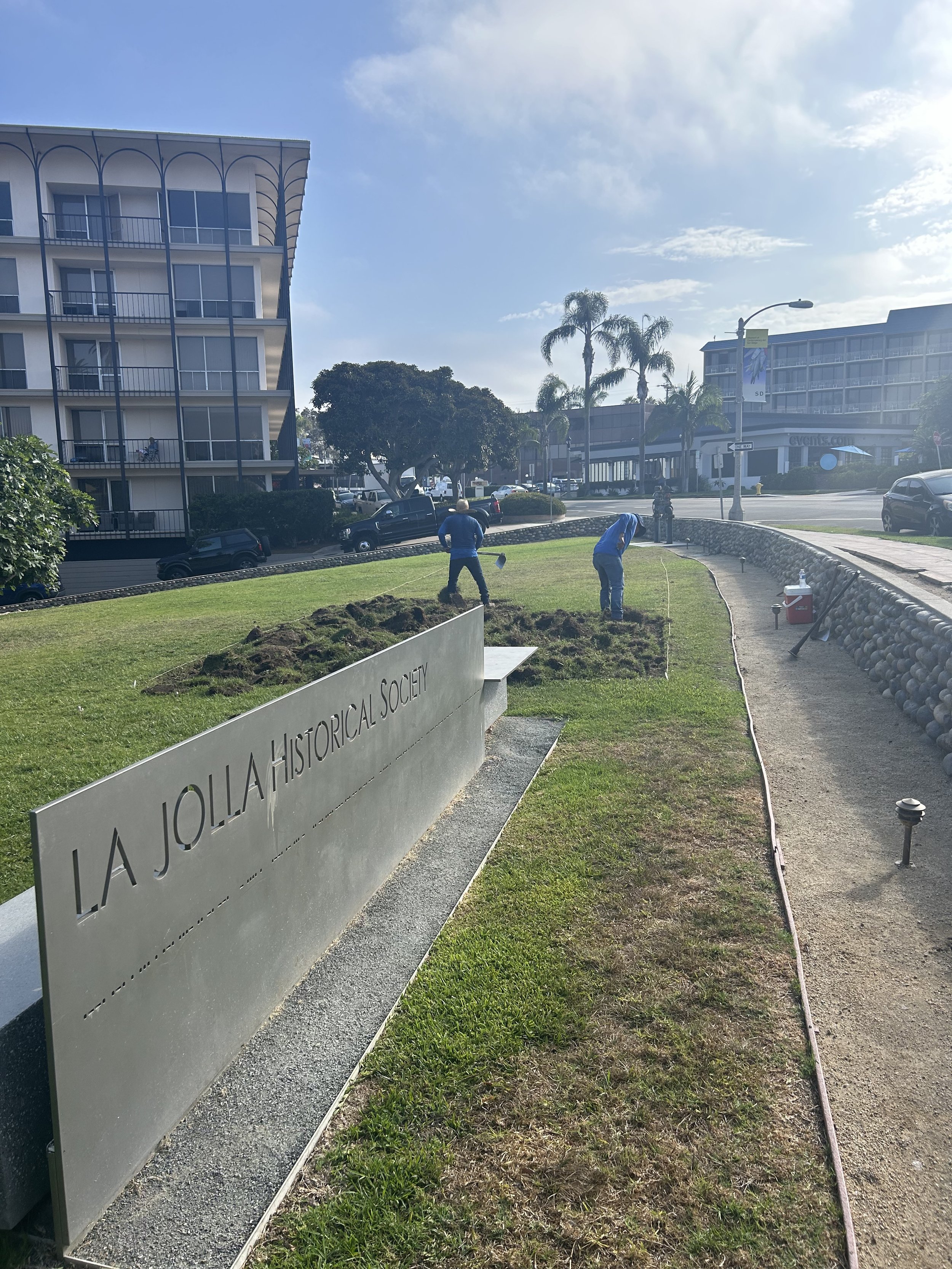
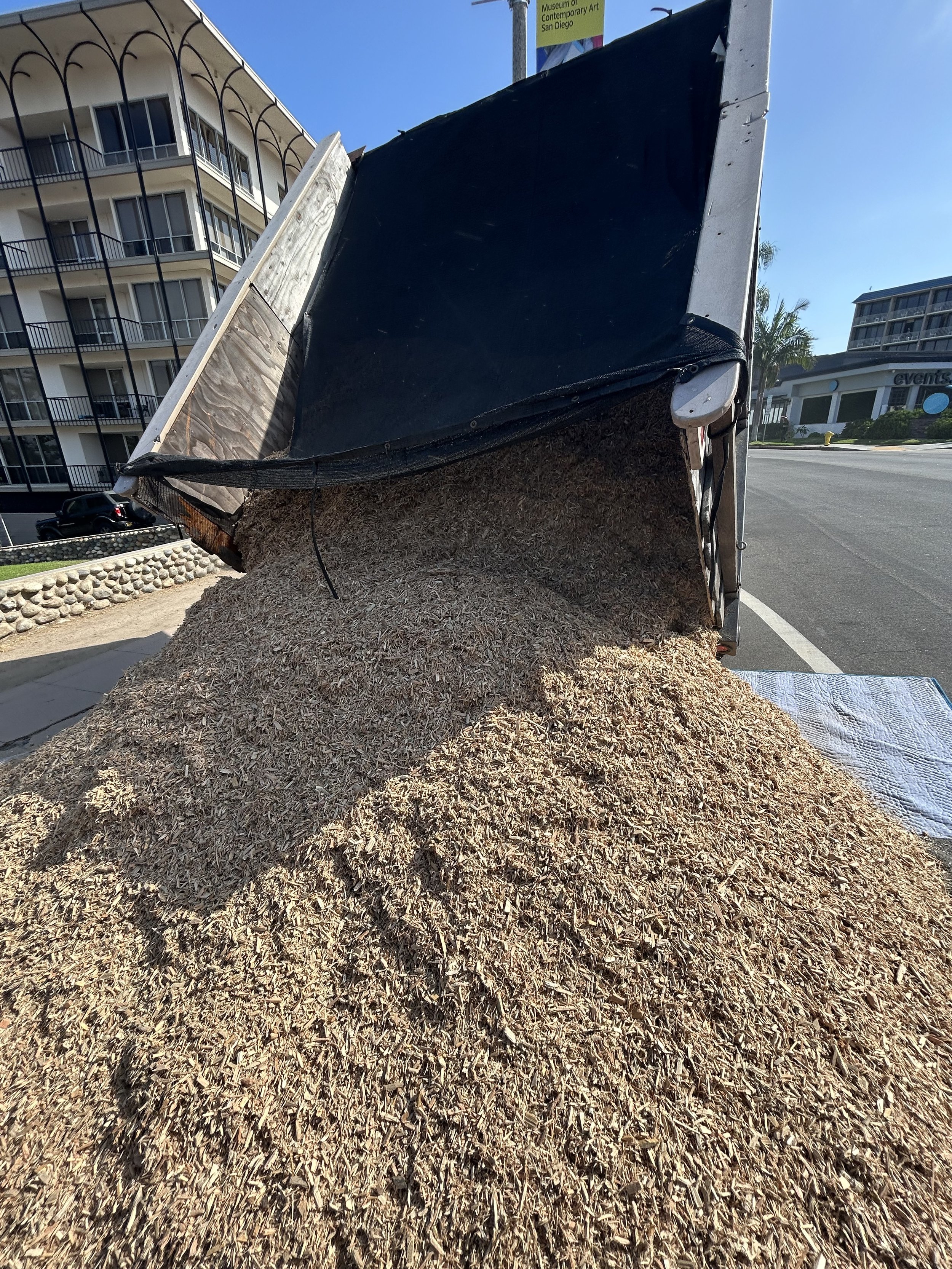

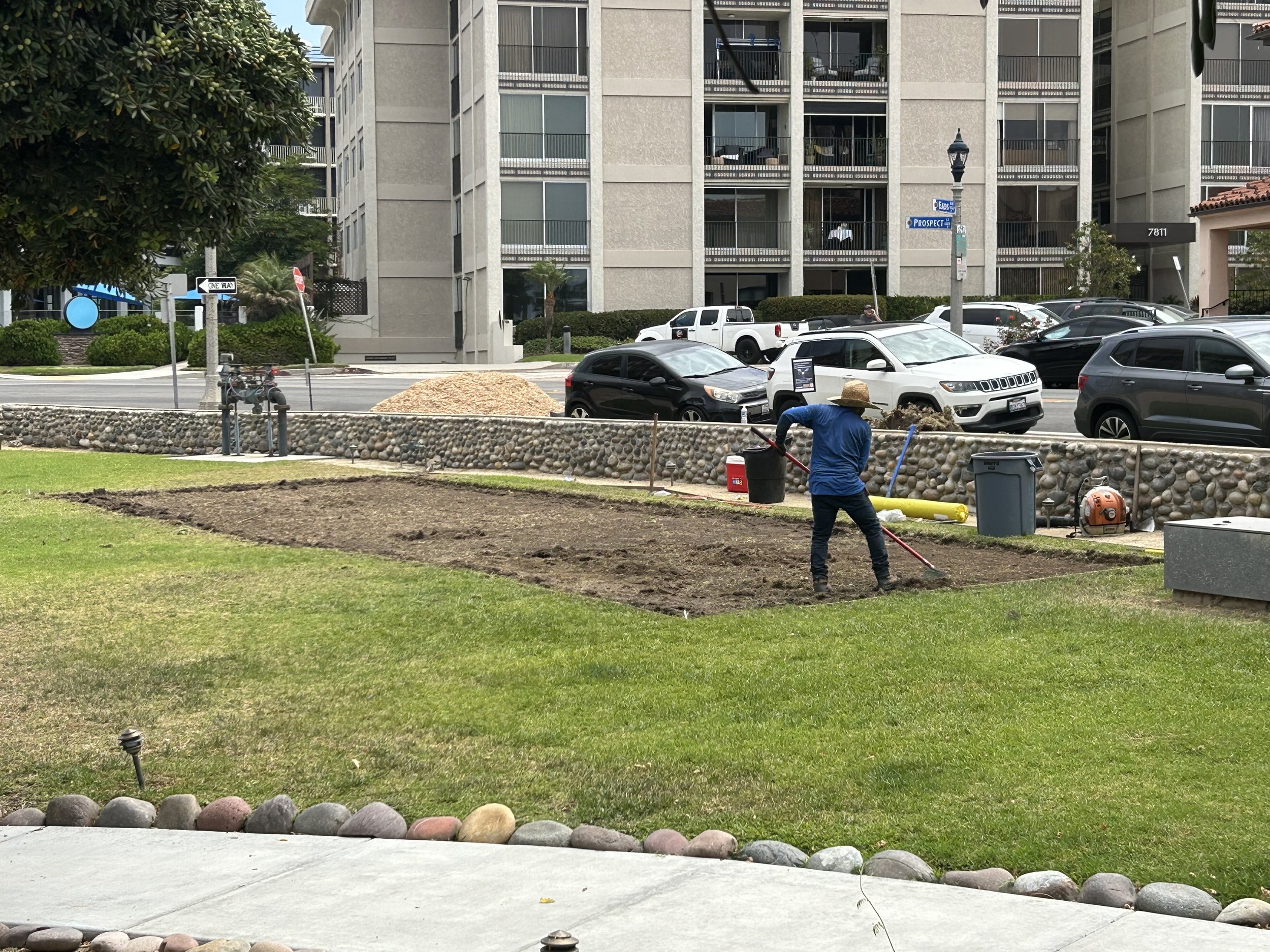

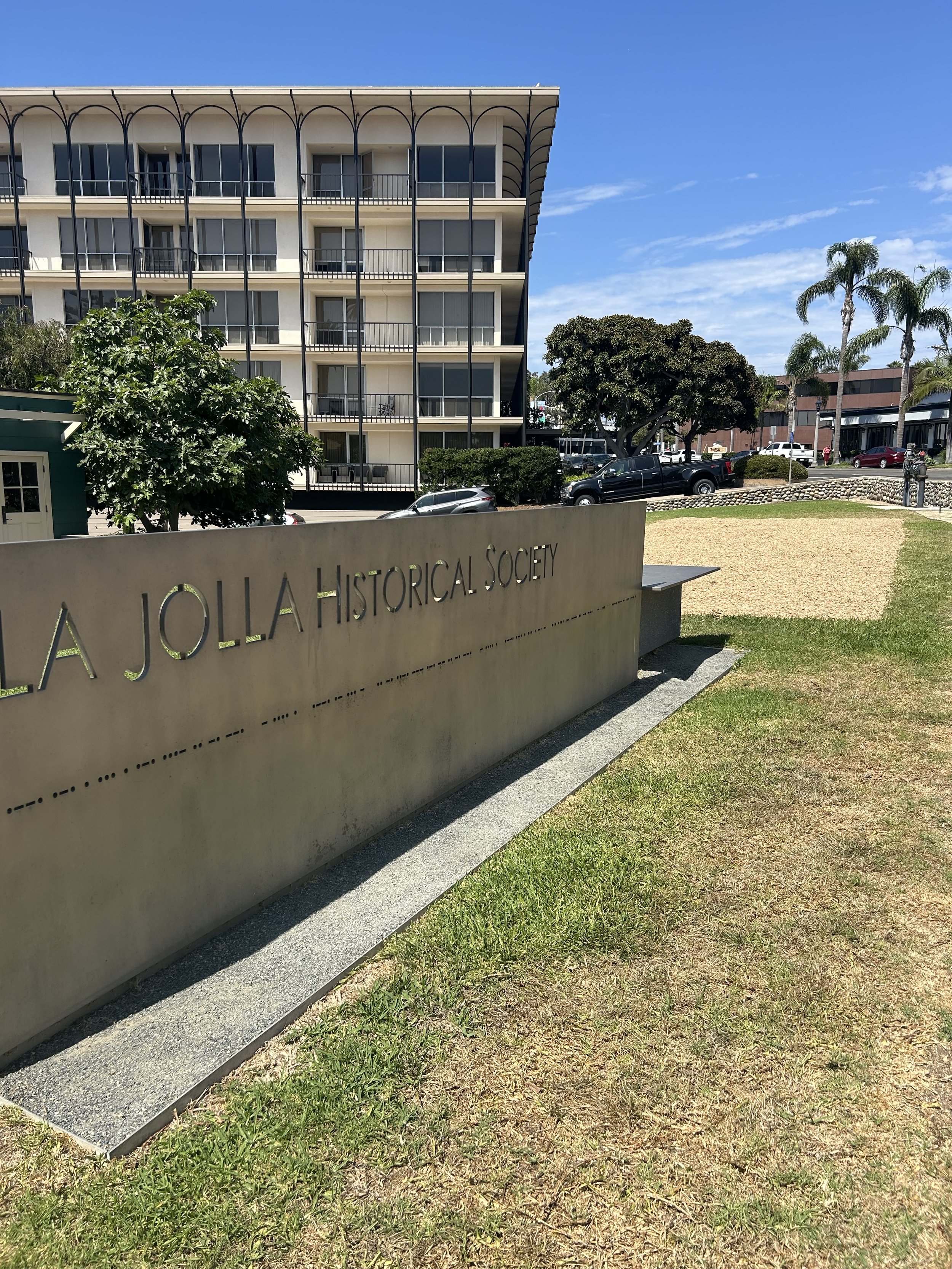


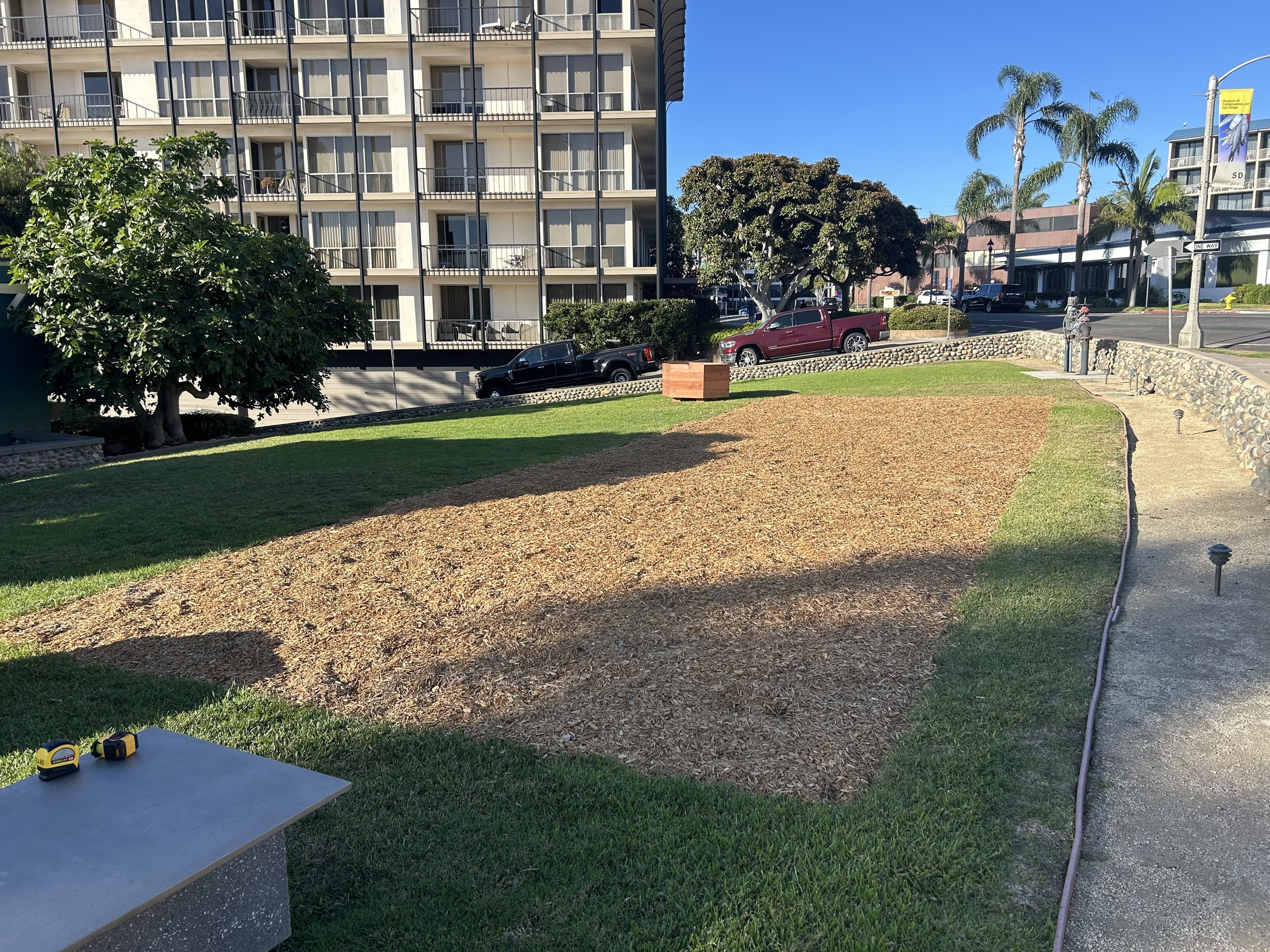





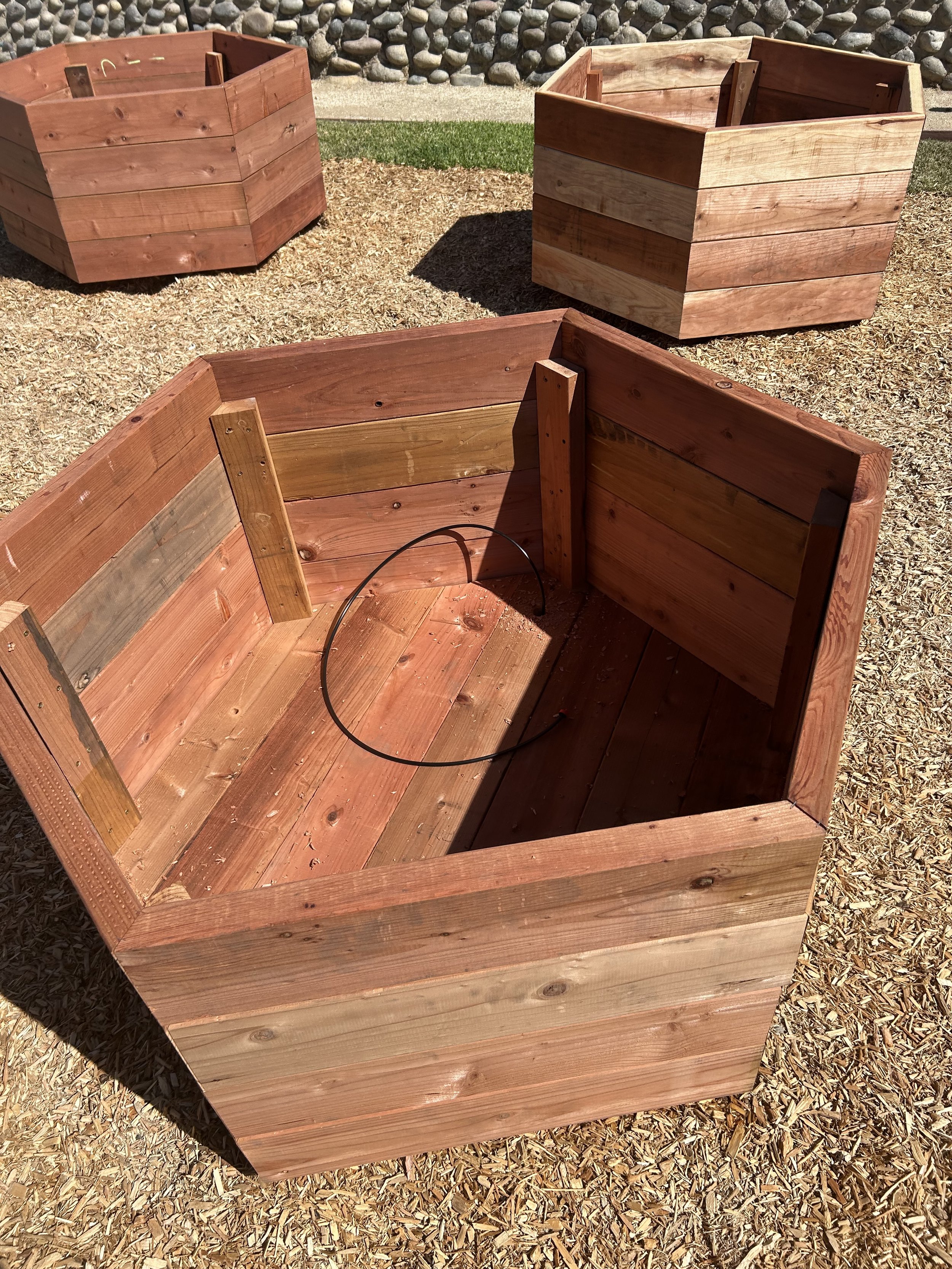


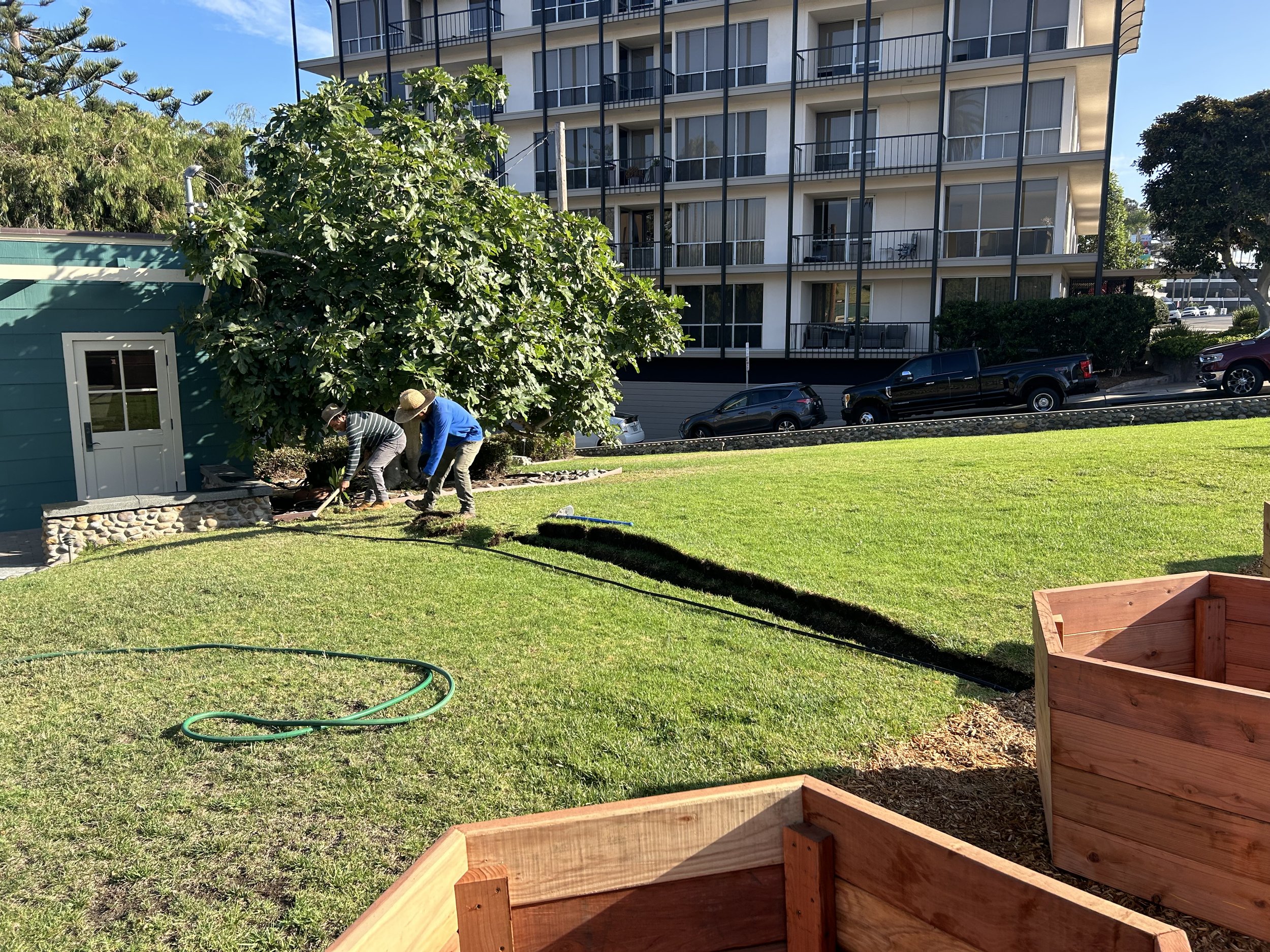


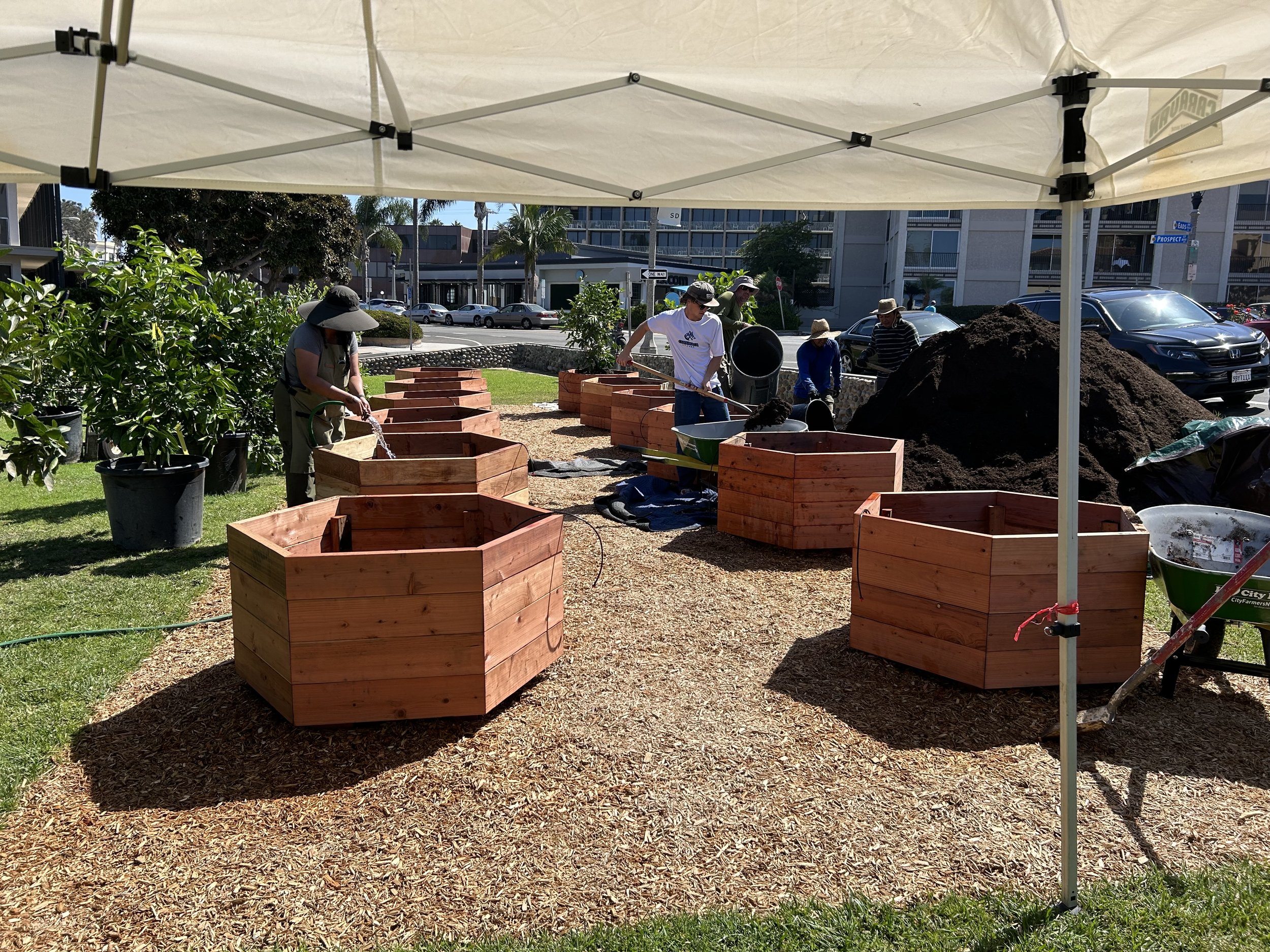
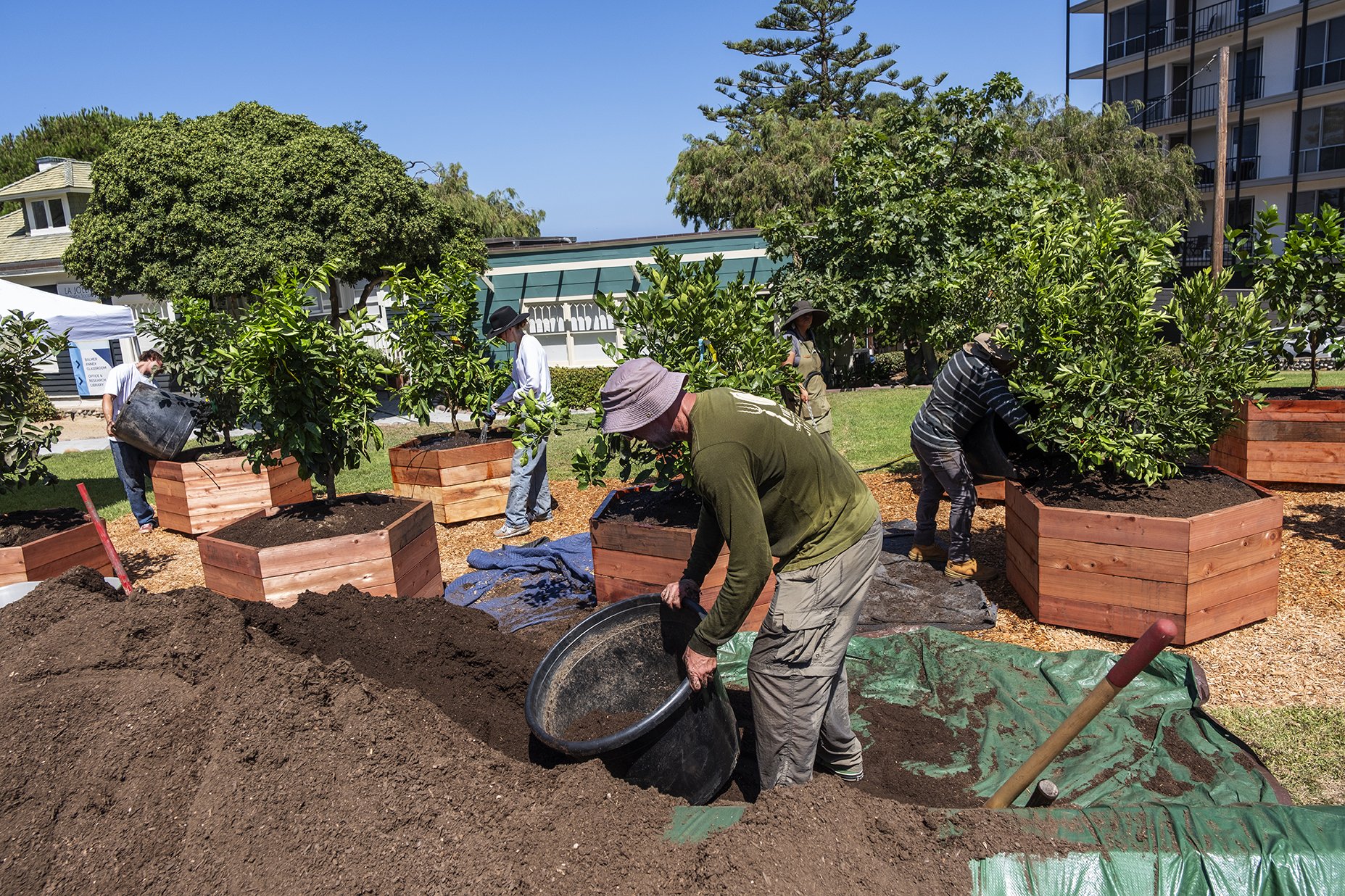
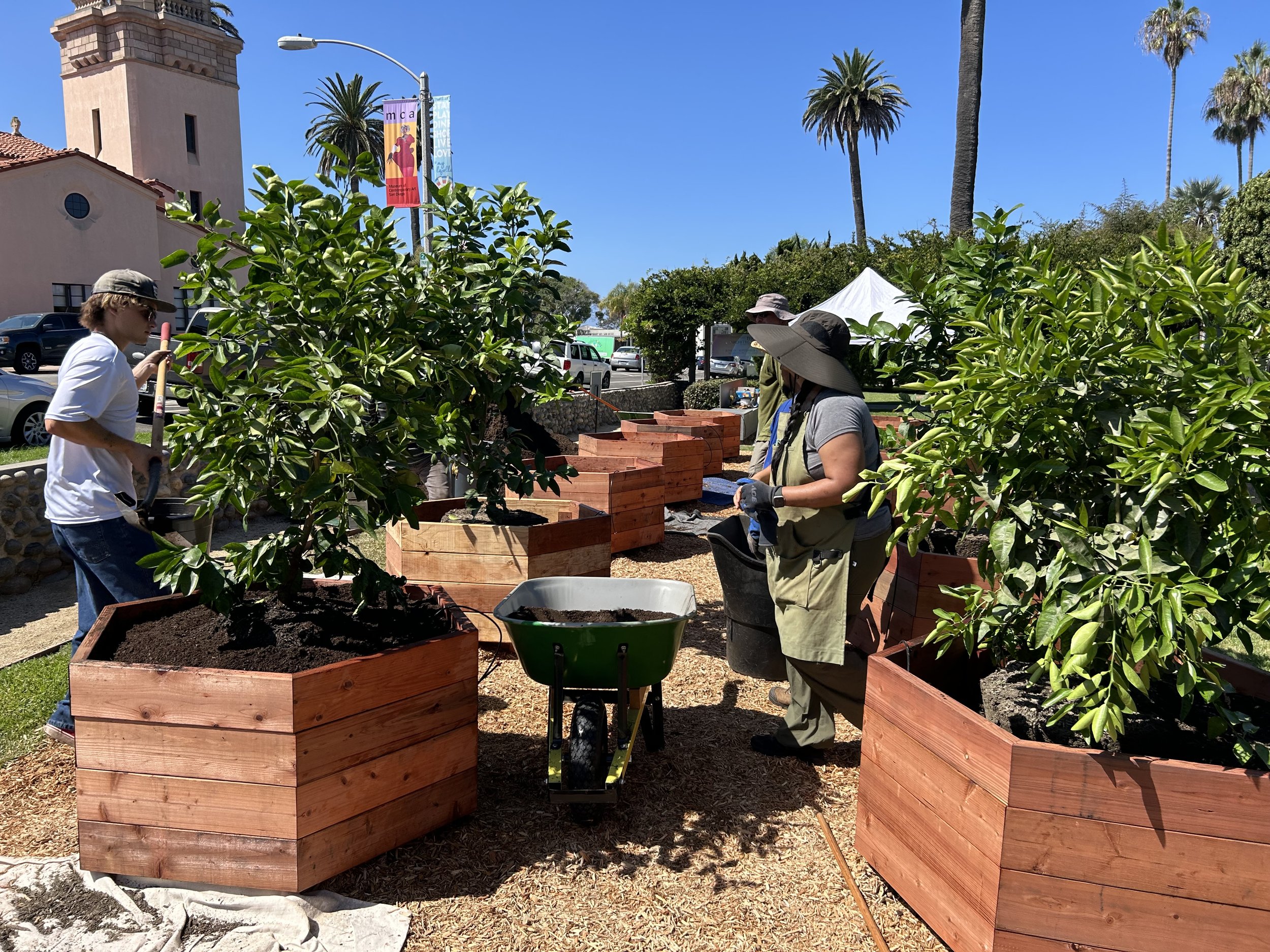

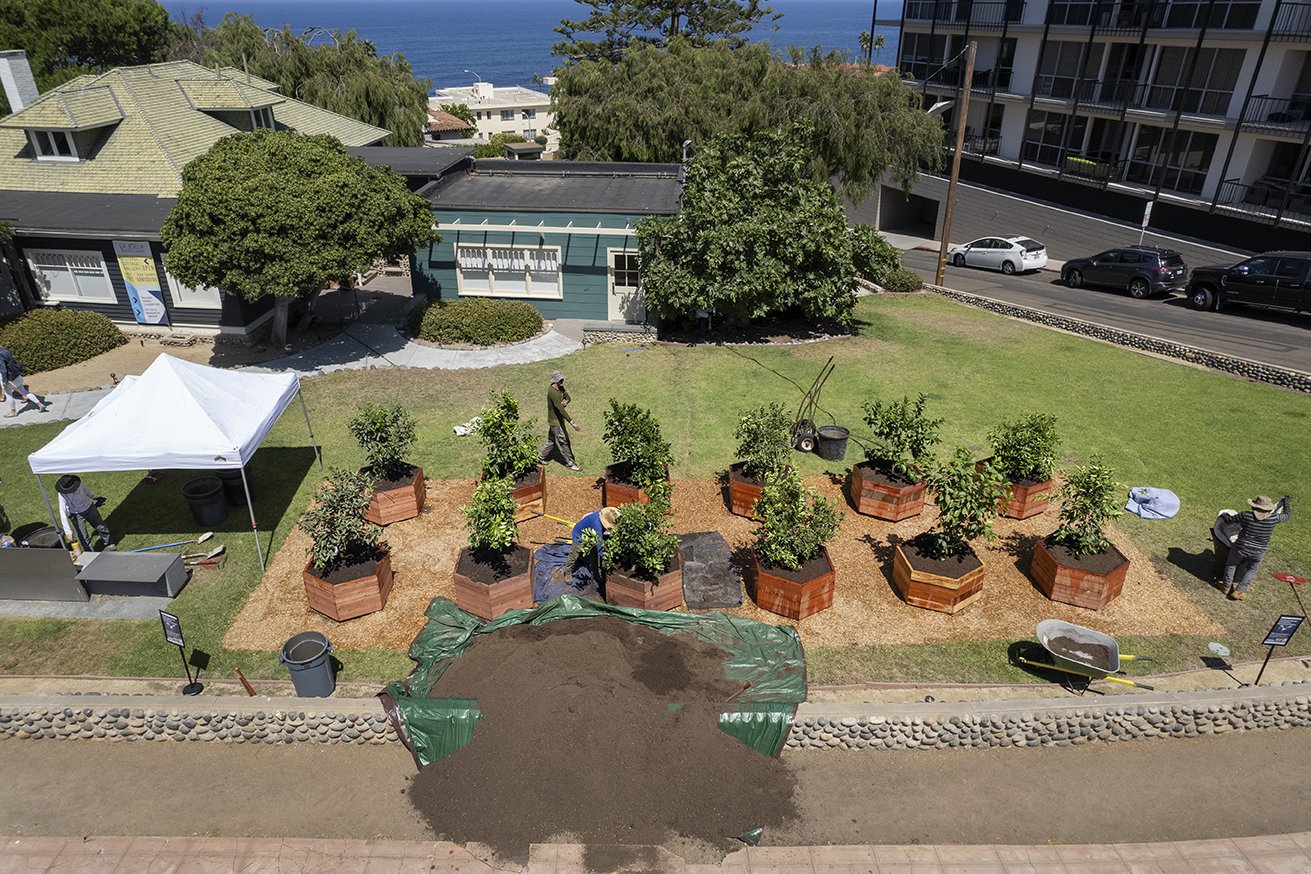
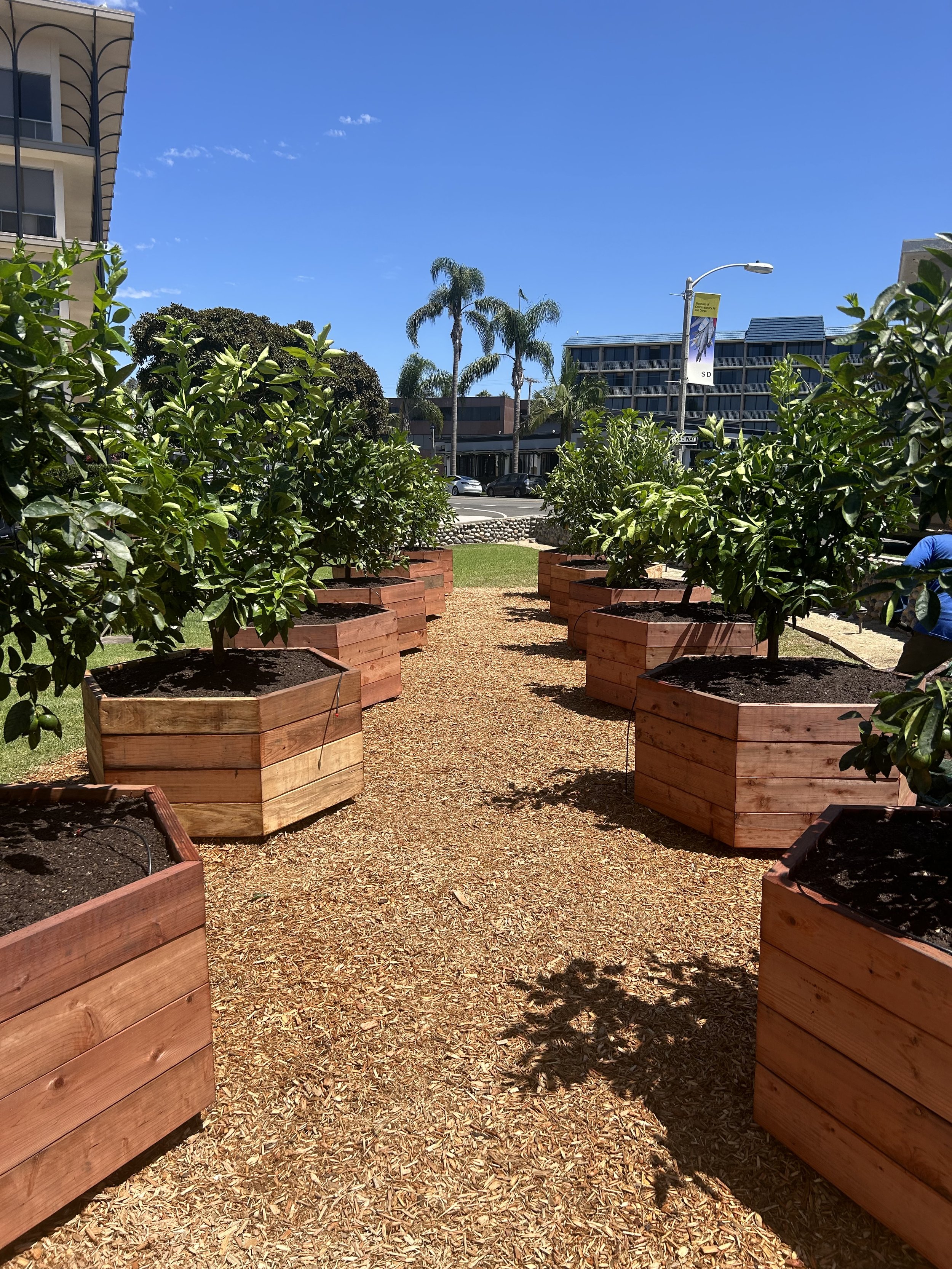





Team Orchard
-
McKenna Clifford Yahyai
McKenna Clifford Yahyai was raised in San Diego and studied Art History and Economics at Marymount Manhattan College in NYC. She previously worked at the New Children's Museum for a cumulative of 5 years, where she helped launch and operate their first Satellite space, Art + Play Space. She has also worked with the Institute of Contemporary Art San Diego and on contract for various artists supporting completed projects with John Michael Kohler Arts Center, La Jolla Playhouse, MCASD and more. Currently, McKenna is the Education and Public Engagement Manager at La Jolla Historical Society.
-

Carla Quimson
Carla Quimson is a horticulturist and freelance landscape designer passionate about harmonizing nature and human design. Born in Manila, Philippines, she was inspired by her childhood experiences in the mountains of Montalban, Philippines, where her love for nature began. After moving to the U.S., Carla earned degrees in Environmental Horticulture and Landscape Architecture from Southwestern College. Now a junior at Cal Poly Pomona, she also works as the horticulturist at the San Diego Natural History Museum and offers sustainable, native plant landscape designs that connect people with nature.
-

Cameron McCamy
Cameron McCamy grew up enjoying spending time in the pounding surf and fragrant chaparral of San Diego County. After studying landscape architecture in Colorado, he returned to California to work in landscape architecture firms where he became passionate for water conservation and responsible irrigation design. He’s excited for this exhibit, as it highlights water conservation efforts that Californians will have to adopt to be more ecologically sustainable stewards of the state.
-

Sam Tall and City Farmers Nursery
Owner of City Farmers Nursery. Founded by his father, San Diego native Bill Tall in 1972. City Farmers Nursery is a family-owned, independently operated, garden center and nursey located in the heart of San Diego. As Bill always said, “Sometimes you’re going to come in and we’re not going to sell you a single thing… because all you need to do is change your watering!” City Farmers carry on the tradition of over four decades of free advice – we've got the time and our staff has the knowledge to make sure your garden projects thrive.
-

Craig Madden
Founder of Yard to Table Creations, a community-focused initiative dedicated to promoting sustainable living through gardening and home cooking. Craig empowers families to grow fruits, vegetables, and herbs, transforming harvest into fresh, healthy meals. With a focus on native plants and eco-friendly practices, his workshops make sustainable living accessible and enjoyable, fostering a deeper connection to nature and local ecosystems.




